

Ever heard of NCH in London? Here’s why you should come to us
Founded in 2011 by UK philosopher A C Grayling , New College of the Humanities (NCH), is a university-level college based in St Katharine Docks, just a few minutes’ walk from the Tower of London, one of the UK’s most iconic heritage sites, and Tower Bridge, one of the most instantly recognisable structures in the world.
NCH offers its students liberal arts-inspired undergraduate degrees, and masters degrees positioned at the juxtaposition of the humanities and technology, including the MSc Responsible Artificial Intelligence and the MSc Digital Politics & Sustainable Development.
Here are six reasons why you should consider NCH as a place to study:
1. Global Campus Network
As part of Northeastern University (Northeastern)’s global network, NCH has a global outlook and enjoys wide-ranging support from a highly ranked US teaching and research institution, while retaining its academic independence as a UK higher education institution. Furthermore, with its campuses in Boston, Charlotte, Seattle, Silicon Valley, Toronto and Vancouver, Northeastern’s network opens up enormous opportunities for NCH graduates, including the possibility of studying in the USA. The College also welcomes international students from around the globe converging in London to study a range of Northeastern University programmes, which in turn, broadens students’ global outlook and networking opportunities during their time at the College.
2. Online Library Resources 24/7
New College of Humanities students have full access to the digital resources available from Northeastern University’s Library . Located in Boston, Northeastern University leads the way in redefining library service in the 21st century. Resources include over 800,000 e-books and over 100,000 electronic journals. The Northeastern University Library provides the resources and services which enable students to ignite interests, spark creativity, and forge new discoveries.

3. Our unique degrees
Undergraduates choose a combined honours degree comprising a ‘major’ subject and a complementary ‘minor’ subject, from any two of Art History , Economics , English , Geography , History , Philosophy , and Politics & International Relations . NCH also offers Philosophy, Politics & Economics (PPE) and Philosophy, Politics & History (PPH) combinations, Creative Writing as a minor option, and a single honours Law LLB . On top of your undergraduate degree, all students study the NCH Diploma , which includes Applied Ethics, Critical Reasoning and Science Literacy, and LAUNCH , a professional development programme to help students gain professional skills to succeed in the workplace.
4. State-of-the-art Campus in the Heart of London
Here at NCH, we as students are incredibly lucky to study at our state-of-the-art campus at Devon House, in central London’s St Katharine Docks. Devon House combines unrivalled views of London and the Thames with a vibrant waterside environment, all in the centre of historic London. With 48,000 square feet of space from September 2022, the College’s home provides a wide range of accessible facilities for students and staff and space for the College to grow and evolve. The campus has an impressive private street entrance and welcome area.
Devon House offers substantial teaching spaces with 14 classrooms, 7 tutorial rooms, and seminar space, providing flexible capacity for class sizes from 18 to 80. A first-floor open event area accommodates up to 180, and a ground floor open event space seats up to 70. The innovative and modifiable space serves up to 1,400 students and staff, with a capacity of up to 715 at one time. Our campus is extremely welcoming to all, with excellent accessibility and support, including lifts, wide entry points, adaptable furniture, and hearing loops.
5. Societies and clubs
With a small cohort of students, NCH is a tight-knit community in a big city. The small class sizes mean that students can get to know others in their course. NCH has a wide range of clubs and societies, with students having the ability to create their own society with help from the Student Union , who actively provides funding. Students at the College are also able to participate in a huge array of clubs and societies, as well as events such as pub crawls, club nights, parties and balls, run by Student Central for students across the whole of London.
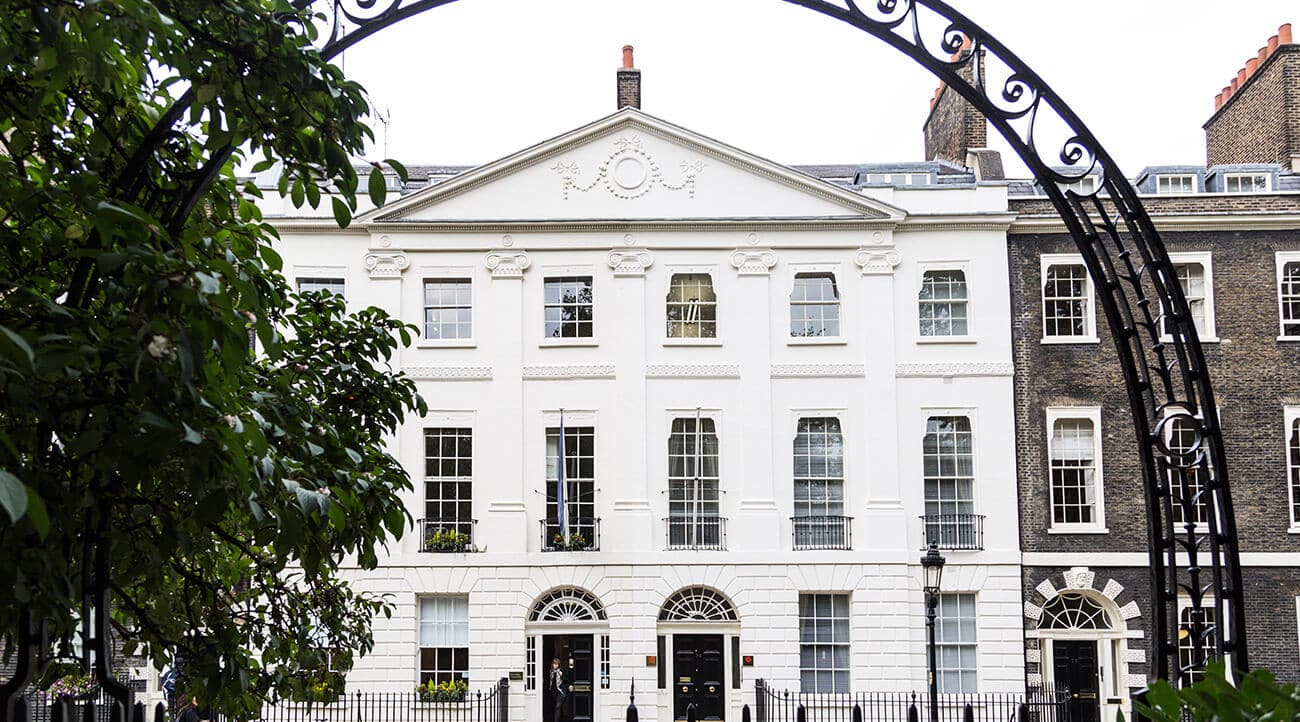
6. Exceptional Employability Outcomes
The College produces young people who not only have an excellent degree, but who are also highly desirable in the graduate recruitment market and well-prepared to make the transition from university to the world of work. Equally, many of our graduates have used their NCH degree as a springboard to progress into postgraduate study at some of the world’s top universities. As a result of its one-to-one careers counselling and embedded employment skills programmes, the College’s graduates have reported between 94% and 98% in employment or postgraduate study in the annual graduate outcomes survey, a significantly higher rate than high ranking UK universities.
Related Stories

Study at the University of Cumbria in England’s Beautiful Lake District

Studying Law in the UK and Abroad Could Save You Thousands of Dollars

Everything You Need to Know About Studying in the UK
Leave a reply cancel reply.
Your Name (required)
Your Email (required)
Your Website (optional)
Save my name, email, and website in this browser for the next time I comment.
To get the most value out of this important event, you should prepare for it in advance if possible, and follow up afterwards. Here are some tips on how to make the best use of your time at the Study and Go Abroad university fairs:
Before the fair:
- See which institutions are attending by viewing the exhibitor list
- Read the profiles of the institutions that are of direct interest to you; also have a look at the other profiles as well – you may be surprised which university or college offers what you are looking for
- If you are not sure of what study topic you want to pursue, start with the countries you want to study in; you can sort by country on the exhibitor listing (use arrow toggle over ‘country’) and see which schools are located in which countries and explore from there
- Visit www.studyandgoabroad.com and find out more about the various countries – you will find country facts and figures under the ‘Study Overseas’ drop down menu – and read up on some articles about student experiences, fields of study, etc.
- If you already know what you are looking for, bring along your transcripts, portfolio, résumé – whatever you have already on hand to present to the representatives. If you don’t have them, that is okay as well – you will find out what you need once you discuss your plans
During the fair:
- Use the Fair Guide you will get when you enter to navigate your way around the room
- Attend the free seminars : These information sessions are for you to learn in depth about the presentation topics and to ask questions; visit the presenters afterwards at their stands for more details
- Ask as many questions as you need to; the fair is for you to research and learn about the many institutions in attendance
- Collect information resource materials from the schools that are of interest to you and from the other service providers
- Don’t rush through: It is not often that you will have the chance to visit with so many representatives in your city, so take your time!
After the fair:
- Follow up with representatives you met and keep in touch with questions and planning
- Read through the materials you collected during the fair
- Make up a comparison chart of important issues that you extract from the various brochures and websites of different schools of interest to you, to help you with your decisions
- Discuss your ideas and plans with friends and family; this often helps to clarify issues
- Study in UK/British Council: www.britishcouncil.ca and study-uk.britishcouncil.org
- Study in the USA: educationusacanada.ca
- Study in Germany/German Academic Exchange: www.daad-canada.ca/en/
- Universities Canada: www.univcan.ca
- Colleges and Institutes Canada: www.collegesinstitutes.ca
- Study in Australia: www.studyaustralia.gov.au
- Study in France/Campus France: www.canada.campusfrance.org and www.campusfrance.org/en and francecanadaculture.org/ higher-education/student/ campus-france/
- Study in Holland: www.studyinholland.nl and www.netherlandsandyou.nl
- Study in Hungary – http://studyinhungary.hu
- Education Ireland: www.educationireland.com
- Study in Korea – www. studyinkorea.go.kr
- Study in New Zealand: www.studyinnewzealand.com
- Study in Norway: www.studyinnorway.no
- Study in Scotland: www.scotland.org/study/
- Study in Spain: www.studying-in-spain.com
- Study in Sweden: www.studyinsweden.se
The upcoming Study and Go Abroad / SchoolFinder fairs are for everyone interested in looking for undergraduate or post-graduate programs in Canada overseas, or in taking a volunteer program, working or taking an internship abroad, considering a gap year or career break, or adventure travel.
The event is focused on post-secondary education, hosting top-ranking university and college recruiters from Canada and around the world. As well, there are several vocational, work experience and Gap Year/Career Break program providers.
You should attend if you are:
- Looking for undergraduate programs in Canada or overseas
- Looking for masters/doctoral programs in Canada or overseas
- Considering a gap year or a career break
- Wanting to upgrade your education or skills, or change career path
- Looking to take advantage of Working Holiday Visas to work abroad – changed
- Researching universities for exchange programs
- Wanting to travel and experience the world
- Inspired to broaden your horizons!

and we'll send you a reminder for the next Study and Go Abroad Fair as well.
We will never give away, trade or sell your email address. You can unsubscribe at any time.
- EN Action Another action
- Free Counselling
Thanks for visiting TopUniversities.com today! So that we can show you the most relevant information, please select the option that most closely relates to you.
- Looking for undergraduate studies
- Looking for postgraduate studies
- Student but not looking for further education at the moment
- Parent or Guardian
- University administrator
- Professional
Thanks for sending your response.
Your input will help us improve your experience. You can close this popup to continue using the website or choose an option below to register in or login.
Already have an account? Sign in

Northeastern University London
Northeastern university london, london, united kingdom, 8 postgraduate programs, 14,000 gbp tuition fee/year, available scholarship, find your perfect course, about northeastern university london.
Northeastern University London is a university based in the heart of London which has a truly international outlook, while retaining its academic independence as a UK higher education provider with its own degree awarding powers.
Northeastern University London is part of Northeastern’s global, experiential, research university network, built on a tradition of engagement with the world. We support our students to grow as innovative problem solvers through academic study, one-to-one mentoring, and world-leading experiential learning opportunities.
NU London’s innovative Experiential Learning approach embraces the concept of ‘learning by doing’, seamlessly blending the classroom with real-world experiences. By capitalising on the prime location at the doorstep of the City, students can maximise opportunities to bridge the gap between theory and practice.
Available programs
NU London’s masters programmes foster advanced skills in critical questioning, information gathering, synthesis and analysis, and oral and written communication. Graduates are likely to pursue a research degree and an academic career, or wider employment opportunities in a range of diverse industries.
Postgraduate study at NU London is distinguished by, among other things, very small, highly interactive classes, and access to the best study and research resources at Senate House Library and expert Professors.
Arts and Humanities (3)
Ma contemporary creative writing, ma philosophy and artificial intelligence, business and management (3), msc artificial intelligence & computer science, msc artificial intelligence & data analytics, msc artificial intelligence & ethics, msc artificial intelligence and data analytics, msc global investment banking, social sciences and management (3), msc digital politics & sustainable development, tuition fee and scholarships.
- Tuition Fee
- Scholarships
Domestic Students
International students.
One of the important factors when considering a master's degree is the cost of study. Luckily, there are many options available to help students fund their master's programme. Download your copy of the Scholarship Guide to find out which scholarships from around the world could be available to you, and how to apply for them.
In this guide you will find:
Where to look for scholarship opportunities
How to apply to scholarships relevant to you
A list of available scholarships around the world
A scholarship application checklist
Campus locations

open the map
Similar Universities


Essay Competitions for Year 12 Students: A Complete Guide
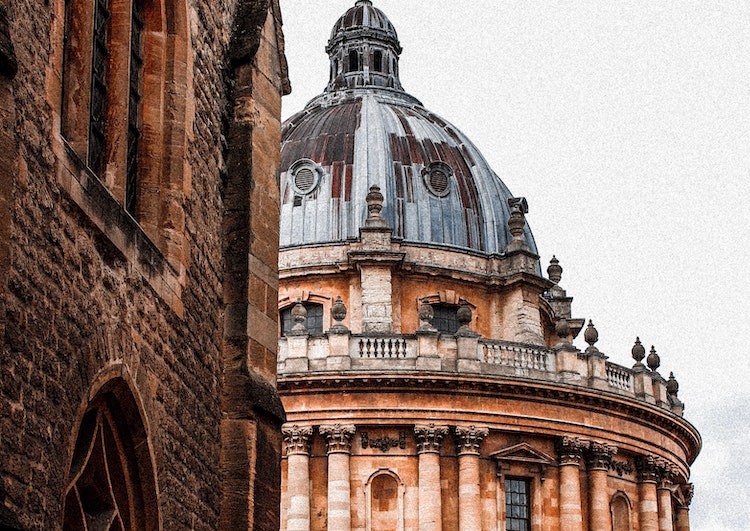
I must confess that essay competitions were not a thing when I applied to uni. But then when I applied to uni, all that was required was a decent pass in all my A-Levels and a part-time job in McDonalds. The story for today’s teens is not so simple.
Today I’m sharing a guide to independent essay competitions run by colleges and other organisations. This is a chance for students to share work they’ve already done, or create a fresh essay on a topic set by the organisers.
While you’re here, don’t miss our other guides for Year 12 students:
- Complete guide to pre-university summer schools
- Oxford and Cambridge admission tips from an admissions director
- 50+ super curricular activities for Year 12 students
Table of Contents
Why essay competitions are useful
Essay competitions for Year 12 students are a great way to build up your UCAS application. They’re a great example of a super-curricular activity. They show universities that you have a genuine interest in a subject, and expending your learning beyond the classroom.
This is important if you are applying for a competitive course like English or Psychology, or a competitive university like Oxford or Cambridge. We’ve focused on English and humanities here because that’s what my teen is researching. But if you want to study something else, this guide includes relevant essay competitions in other areas for Year 12 including law, philosophy and history.
There are essay competitions in LOADS of subject areas. The below essay competitions for Year 12 (and sometimes other years) could help. Not only by showing your commitment. If you win a prize, then you could mention this in an application. Some essay competition prizes include attendance at a university open day, providing a valuable way to stand out to admissions teams.
Complete Guide to Essay Competitions for English Lit Students
Below you’ll find a list of Year 12 essay writing competitions that are aimed at, or suitable for, English students. Some of these competitions won’t open until later in the academic year. Others are open for entry in 2024 for students applying to university in 2024/25. I’ve indicated a month of closing for each competition. I’ve also provided a brief description of each competition and details of prizes. Click through to find out more.
Girton College Humanities Writing Competition
Girton College, Cambridge, runs an annual competition for humanities essays, which is suitable for students wanting to apply for English at university. It’s also a great opportunity for students of history, geography, economics and other humanities.
The essay prompt is an exhibit from the college’s museum collection, and students are invited to submit an essay inspired by that item. Winners receive prizes of up to £200. It’s worth noting that only three students per school can enter this competition. The submission deadline is MARCH and the prize is £200.
Find out more
Minds Underground Essay Competitions
This scientific focused from Minds Underground essay competition has a category aimed at ‘senior’ students, which means Year 12. There are actually multiple essay categories covering science, geography, medicine, veterinary science along with history, english and classics. The submission deadline for all categories is April 3, 2024.
Find out more
Immerse Education Essay Competition
This annual essay competition has an unusual prize – a place at the annual pre-university summer school run by Immerse Education in Oxford, Cambridge or London. It’s a highly competitive competition and the standard of entries is high. The deadline is January each year, further details available online.
Sheffield Philosophy Essay Competition
This competition has small prizes of £50 but worth entering for the kudos. It’s open to students in Years 10, 11 and 12, and invites you to write an essay of 1,500 words on one of five ethical/moral questions like ‘Can animals be moral?’. The competition opens in January and closes in May.
Sheffield History Essay Competition
The University of Sheffield is also running a history essay competition for 2024, which is open until April 26, 2024. To enter the competition, Y12 students must create a 1500 word essay on one of 5 history prompts. Worth noting you can win £100 if you get a prize, but there can only be two entrants from each school or college.
ISA Essay Competition
While some competitions are only open to state school students, the ISA Essay challenge is open only to students attending independent schools that are part of the Independent Schools Association.
The competition is open to students of all ages and entries are judged in various categories, including one for Year 12 and 13 students. The competition opens in February 2024 and closes in May. There’s also an annual poetry competition that might be worth considering for literature students.
Find out more
New College of Humanities Essay Challenge
NCH London also runs an annual essay competition for Year 12 students, which is open worldwide. The contest includes various categories that may be of interest to future English students. Entry is open to students in Year 12, and the essay prompts will be published on September 5 or thereabouts. Students need to submit a 1,500 word essay by the following January. The overall winner of this competition gets a £1,000 prize. There’s also £500 or £200 for the runners up.
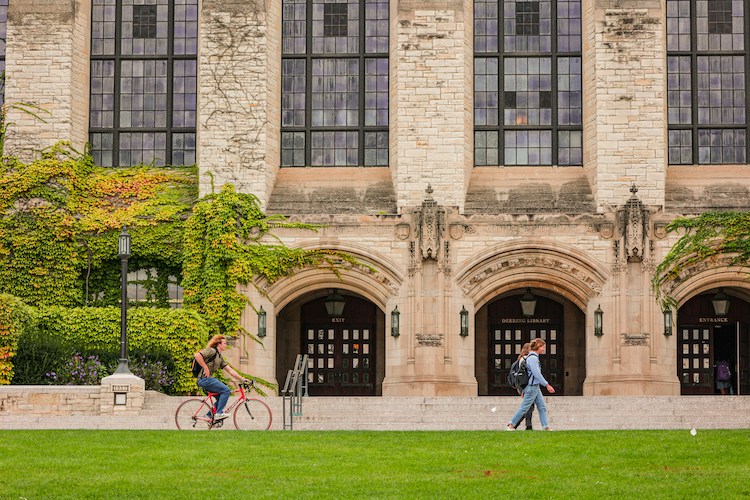
NU London Essay Competition
This competition is not yet open for 2024, but information on the annual essay competition run by the Northeastern University, London can be found online. The competition is open to students in Year 12, and covers technology, social science and humanities topics. Expect questions to be posted in January and the competition usually runs until April.
Fitzwilliam College Essay Competitions (various)
This year, Fitzwilliam college, Cambridge, is running a series of essay competitions in Ancient World and Classics, Archaeology, Economics, History, Land Economy, Medieval World and Slavonic Studies. Entries must be submitted by the end of March 2024. Students must be in year 12 and there is a limit of 5 applications per school per competition. Helpfully, the college is running a couple of webinars in essay writing, to help students make the most of the competition.
The Hugo Young Award
If you’re a budding journalist or activist, the Hugo Young award is run annually by the Guardian newspaper and is open to people aged 16-25. The prize is to create a short piece of journalism on a topic of your choosing.
There is a specific category for 16-18 year olds (if you’re under 18, you’ll need an adult to confirm your entry) and the award is open to anyone from a state school background, although entries from traditionally under-represented groups are especially welcome. You can win £100 in book vouchers, a Guardian subscription and certificate.
The Rex Nettleford Prize
Run by Oriel College, Oxford, this essay competition focuses on the enduring influence of colonialism on our lives. The rules encourage students to engage with the legacies of colonialism in all its forms – historical, political, economic, social, cultural. Entry is via a 2,500 word essay, and is open to students in Year 12. The prize is £250, and your entry needs to be submitted by 15 March, 2024.
Magdalene College Essay Competition 2024
This competition has not yet opened for 2024, but you can register for more information and to get an alert when entries open. Traditionally, the competition is open to arts and humanities students in Year 12, and is open to students currently in state school education.
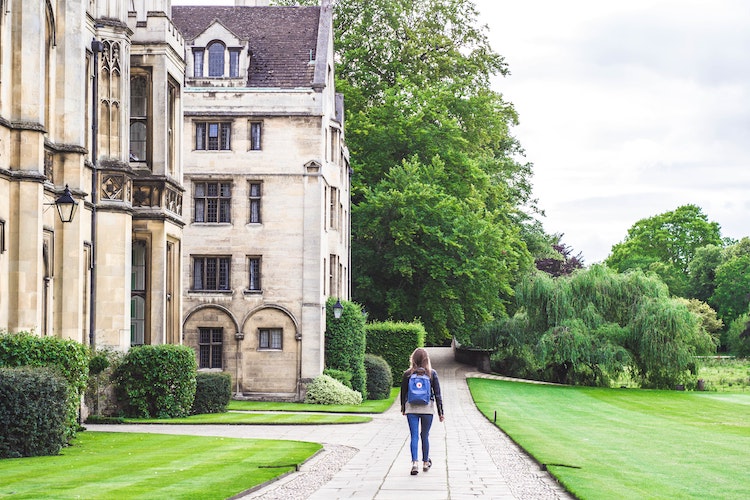
Newnham College Essay Competitions
The Newnham competition has been in the news recently because it has changed its rules so that students from independent schools may NOT enter their essay competition. Newnham is a Cambridge college, and as such, they’re trying to distance themselves from the idea that they favour students from privileged backgrounds. Fair enough.
The Newnham competition offers a number of essay prizes, that are open to female students in Year 12. The college provides webinars and guides outlining how to submit and create your essay. Entries are submitted each March, and there is a maximum of four entries permitted in each subject, per school. Details of the Woolf essay, which opens each summer, can be found online.
LSE Undergraduate Political Review
This competition has not yet been opened for 2024 but you can see the format of the competition for 2023 and the winning entries on the LSE UPR website.
This competition invites students in Year 12 to write an 1,000 word essay on a political prompt. The prize includes a £100 Amazon voucher, a certificate signed by the head of LSE’s government department and a chance to present at the annual LSEUPR conference.
Trust for Sustainable Living Essay Prize
This competition is open to school students of all ages but the secondary category is for students aged 11-18 and only requires a 600-word essay on a topic around sustainability.The brief for 2024 – “How can nature help us achieve the UN SDGs in my community?” You will need to have your entry submitted by a teacher or other adult aged 18+.
The Peter Cane Legal Reasoning Prize
If you’re an aspiring lawyer in Year 12 or Year 13, this competition by Corpus Christi College, Oxford. The competition opens in January and closes in February. Winning entrants will be invited to a debate at the college later in the year. This year’s essay prompt is a hypothetical legal case and students are invited to submit an essay outlining their view of the case and reasons why they take the position they do.
The Libra Essay Prize
The Libra competition is for students in Y11 and Y12 preparing for university – it opens each year in January and closes in April 2024. There are actually essay questions across eight categories including science, English, history, economics and more. Essays can be up to 2,000 words and winners will receive vouchers of up to £50 for each category.
Royal Institute of Philosophy Essay Competition
If you reckon you could write 1,200 words on the theme ‘Can Machines Think’ then you might be up for the first ever Royal Institute of Philosophy Think! essay competition. There aren’t any monetary prizes but the winners’ entries will be published by the Institute and that’s got to be worth mentioning on your university application!
The St Johns College Classics and Ancient History Prize
This annual competition is now open and closes in March 2024. There are questions for students of classics and history, including classical literature. To enter, students must submit a 2,000 word essay on one of five questions, and could win a £100 book voucher as a prize. In addition, everyone who submits an essay is invited to the college for an open day, including tours and workshops.
Oxford IQ Essay Competition
Similar to the Immerse Education essay competition, the Oxford IQ essay competition gives students the chance to win a free place on a summer pre-university programme in Oxford. Essays are judged on a rolling basis, but must be submitted by March 2024. Entering is something of a process. You need to first register interest in the summer programme including writing a statement on why you want to attend the session, and you’ll receive details of the competition and the essay questions within 48 hours. You can then start your entry, and you’ll be informed within a week of submission if you have been successful.
The Mary Renault Prize
St Hughes College Oxford runs two essay competitions each year. The first focuses on history , the second on classics. The classics essay is worth considering if you’re aiming for an English degree. The competition welcomes entries from students not currently studying Latin/Greek at A-Level, and your essay can focus on classical literature. There are 2 prizes available, worth up to £500. Entries must be 2,000-2,400 words and submitted by late July. Winners are also invited to visit the college for tea!
Queens College Year 12 Essay Contest
Queens College Cambridge runs an annual English essay competition for Year 12 students, demanding a 2500 word essay for a change to win a £500 prize! Entries close in March and the winner is announced in May. In addition to the cash prize, the winner is invited to the college open day and several previous winners went on to study at Cambridge.
The John Locke Institute International Essay Competition
While not strictly aimed at English students, this global contest is very well known and the breadth of topics means you can take a literary approach to another discipline. Students can submit essays across seven different subjects. They are Philosophy, Politics, Economics, History, Psychology, Theology and Law. There are three questions set for each topic, and you can choose your favourite. Entries close in June each year.
The Betty Haigh Prize
Many sixth form students of literature will study Shakespeare and this essay competition is the perfect place to showcase your best work.
To enter the competition, students need to write a 1500 word essay that compares a scene in a Shakespeare tragedy to a film or TV adaptation, OR write a standalone essay exploring how a TV or film adaptation of a Shakespeare drama has thrown new light on the original text. Entries close in September 2024, and winners generally receive book vouchers as prizes.

Gould Prize for English Literature
One of the best essay competitions for english students is the Gould Prize, which is awarded annually by Trinity College, Cambridge.
Candidates are invited each year to submit an essay of between 1,500 and 2,500 words on a topic to be chosen from the list of questions. Entries must be submitted by August 1, with a first prize of £600 to be split between the student and their school or college. Each year there are six questions to choose from, covering novels, poetry and drama.
Robinson College Essay Prize
You don’t enter the Robinson College essay competition because of the prizes – you’ll get a £50 book token if you win. But you’ll get lots of kudos AND an invite to a celebratory award lunch at the college, where you can meet the dean. Similar to the Gould prize, the Robinson College prize poses a series of challenging questions and invites students to answer them from their own perspective. Questions are carefully selected so they’re applicable to literature but also philosophy, history, law and science. This particular competition will not run in 2024.
There you have it! 26 of the best essay competitions for Year 12 students, that you can apply for in 2022. Missed something from our guide? Let me know in the comments!

Uni accommodation scams & how to avoid them

Amazing Experience Gifts Teens will Love in 2024
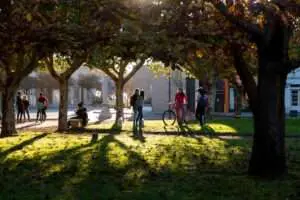
A Complete Guide to Contextual Offers for Uni
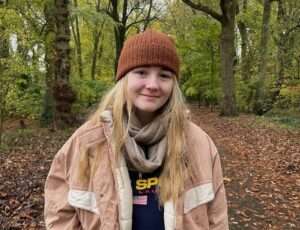
Dear daughter, here’s what I’d love you to know at 18
Leave a comment cancel reply.
Your email address will not be published. Required fields are marked *

- Emily Spriggs
- Oct 12, 2021
NCH London Essay Competition - £1,000 prize

We are delighted to launch our 2022 Essay Competition! Our popular and prestigious essay competition is an opportunity for students to show both their academic potential and passion in the humanities and social sciences with the chance to win a cash prize.
We are inviting essay entries from ambitious and talented students from around the world, who are in their penultimate year of secondary education (equivalent to Year 12/IB1 in England). Our selection of essay titles engages across a contemporary range of humanities and social sciences questions from Art History to Data Science and from creative Writing to Economics. Click to see subjects and essay titles . The following cash prizes will be awarded in each subject: First prize £1,000, second prize £500, third prize £250 You can find full details of the competition here , including the essay titles. You can also read the competition rules and answers to FAQs . Students must register to enter the competition. The deadline for entries is by 1pm (13:00) GMT Monday 1st January 2022. This deadline is strict and we are sorry we are unable to accept any entries submitted after the deadline. Best wishes, The NCH London Team
- Creative Writing
- History of Art
Recent Posts
New Bachelor Degrees
Free Tuition for Ukrainian Citizens
UK General Election: The Emerging Results & What They Mean
20 Best universities for Creative Writing in London, ENG
Updated: February 29, 2024
- Art & Design
- Computer Science
- Engineering
- Environmental Science
- Liberal Arts & Social Sciences
- Mathematics
Below is a list of best universities in London ranked based on their research performance in Creative Writing. A graph of 120K citations received by 9.53K academic papers made by 20 universities in London was used to calculate publications' ratings, which then were adjusted for release dates and added to final scores.
We don't distinguish between undergraduate and graduate programs nor do we adjust for current majors offered. You can find information about granted degrees on a university page but always double-check with the university website.
Please note that our approach to subject rankings is based on scientific outputs and heavily biased on art-related topics towards institutions with computer science research profiles.
1. University College London
For Creative Writing

2. King's College London

3. University of London

4. London School of Economics and Political Science

5. Queen Mary University of London

6. Goldsmiths, University of London

7. Birkbeck, University of London
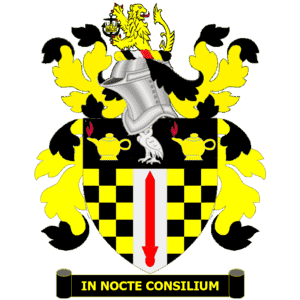
8. SOAS, University of London
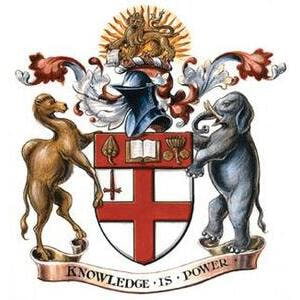
9. University of East London
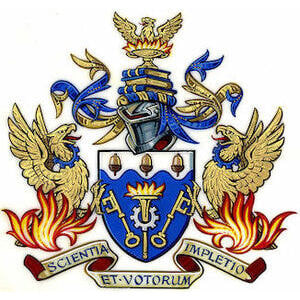
10. City, University of London
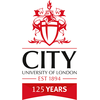
11. University of Roehampton

12. Middlesex University

13. Imperial College London

14. University of Westminster

15. London Metropolitan University
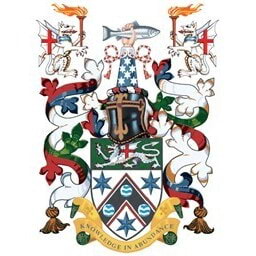
16. London South Bank University
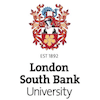
17. University of Greenwich
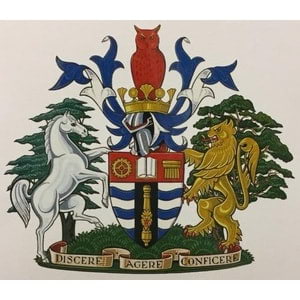
18. University of the Arts London

19. St George's, University of London

20. Royal College of Art

Universities for Creative Writing near London
| University | City | ||
|---|---|---|---|
| 12 | 94 | Ealing | |
| 17 | 88 | Kingston upon Thames | |
| 24 | 46 | Uxbridge | |
| 29 | 67 | Hatfield, England | |
| 32 | 25 | Egham | |
| 43 | 44 | Guildford | |
| 46 | 95 | Luton | |
| 57 | 32 | Reading, England | |
| 71 | 19 | Brighton, England | |
| 76 | 58 | Brighton, England |
Art & Design subfields in London

Creative Writing and Publishing MA (2025/26)
Postgraduate taught degree
This course is for 2025/26 entry.
Details for 2024/25 entry are also available.
Dr Patrick Brindle and Holly Tonks from the School of Communication & Creativity discuss the details of the specialist MA Creative Writing and Publishing programme at City, University of London.
Key information
Sharpen your business knowledge alongside your creative writing skills and become equipped to work in publishing. This programme gives you practical publishing experience and hones your creative practice, allowing you to develop your creative writing skills while at the same time building your knowledge of the publishing industry.
- September 2025
City, University of London
Northampton Square
- Open evening
- Online sessions
- Register interest
Understand publishing in a digital context through ebooks, audiobooks, platform publishing and social media marketing.
in the UK for Communications and Media (Complete University Guide 2025)
- Course overview
Teaching and assessment
Fees and funding, how to apply, creative writing and publishing ma course overview, benefits of this course.
You will be introduced to the fast-paced world of commercial publishing and learn the how the different sectors of the publishing industry – from commercial fiction to academic publishing – fit together in a global industry.
We aim to improve your skills as a creative writer, particularly as a writer of short stories and novels through regular workshops with published authors. You will also build the practical print and digital skills and experience needed to better engage with the publishing industry and work within it.
The publishing part of your MA will focus on the changes impacting on the publishing world as a result of the digital revolution, and will look at the different professional roles in publishing. The course examines commercial fiction and non-fiction publishing, children's publishing, education and academic publishing as core sectors in the industry.
You can select to apply for one of the available exit points for this course.
Master of Arts (MA)
Who is this course for.
If you are a writer seeking to develop publishing industry knowledge alongside writing skills, this programme is ideal. You can get hands-on publishing experience and enhance your creative practice.
Whether you are an experienced writer or relatively new to the field, you will be equipped with new professional competencies from creative digital content to traditional print.
- Full-time: 1 year
- Part-time: 2 years
Total credits: 180
Some modules may be subject to change depending on student numbers, tutor availability, or course updates. This may affect the overall number of modules.
The MA CWP runs over one academic year for full-time students who undertake two core creative writing modules over terms 1 and 2, alongside core publishing modules in term 1 and electives in term 2. In the final term students must complete their Major Project.
Part-time students take the creative writing core modules in their first year of study and in their second year undertake the publishing core modules and electives and the Major Project.
Core modules
Complete all core modules
Reading as a Writer (15 credits)
In this module you will read and discuss fiction and non-fiction from a writer’s perspective. You will gain an understanding of the techniques, forms and styles used by a range of writers and be able to apply them to your own writing.
Creative Writing Workshop (30 credits)
This module introduces you to the practice of creative writing in a variety of genres and encourages experimentation, risk and reflection. You will explore a key range of writing problems and solutions.
The Role of Editorial and Production: Managing Authors, Lists & Intellectual Property (15 credits)
In this module you will consider the traditional roles of the author, the agent and the commissioning editor. As well as commercial and legal issues, you will also consider the broader issues involved in the management of intellectual property.
Digital Publishing (15 credits)
In this module you will analyse the impact of digitisation on the publishing industry. You will look at likely future developments with reference to industry case studies.
Core elective
Choose two or three from
Business and Marketing in Publishing (15 credits)
The module will provide an effective working knowledge of the business and marketing principles and practices of publishing. You will look at how they are applied in different types of publishing organisations in both domestic and global markets.
Understanding Globalisation & International Publishing (15 credits)
The module introduces you to the wide variety of local and globalised contexts of publishing, across different sectors of the industry. It takes in issues such as translation publishing, marketing contexts, and the challenges publishers face when operating across a variety of different languages, cultures and territories.
Working in Publishing: Professional Placements, Skills & Development (15 credits)
This module supports your career development by developing your applied understanding of different job roles, professional contexts and of the roles that your skills and aptitudes might best match. It also supports the acquisition and development of core professional skills related to the industry through training in editorial and design skills and through an engagement with job-seeking skills.
Digital Product Innovation (15 credits)
You will gain a hands-on introduction to the skills needed to plan, design and create innovative prototypes for interactive content, and will encourage you to apply the knowledge and skills you will gain to your own professional development.
How to Make a Book: Creating & Developing Content in Print (15 credits) (15 credits)
This module aims to give you the core skills and understanding necessary to create books in print format. It seeks to provide you with a strategic and a practical introduction to the challenges and opportunities the publishing industry faces.Students will have the chance to deploy key practical publishing skills in the service of creating an original printed book of their own design and creation.
The Power of Publishing: Strategy, Diversity & Sustainability (15 credits) (15 credits)
The module examines both digital and print publishing, and will enable you to apply critical and comparative analyses of practices in different cultural, creative and commercial contests.
Elective modules
Choose one from if you have only chosen two core electives. Please note that this is an indicative list. These modules are subject to change depending on staff availability, student demand and some are offered on a biennial basis. There is no guarantee that every elective module listed above will run.
Special Study: The Novel
Special Study: The Genre Novel
The Art and Business of Adaptation
Dissertation
Creative Writing Dissertation (60 credits)
In this module you will work in consultation with a supervisor to develop this extended piece of Creative Writing, which may be short stories or a portion of a novel or book, to a total of 12-15,000 words. You will gain a systematic understanding of your genre through research into its audience and published practitioners.
Programme specification
The programme specification contains more information on how the course is organised, the requirements for progression for each part and credits required for awards.
Download course specification:
- PSCWRP - MA Creative Writing and Publishing
You will learn through a mix of lectures, workshops, tutorials, group work, seminars and independent learning and research.
Our regular visiting speakers will include guest authors and publishing professionals from across the industry.
Classes in publishing and writing enable you to debate current issues within your field. We also encourage you to reflect on your professional practice during all of your applied work.
We foster a nurturing publishing community here at City thanks to excellent lecturers and guest speakers and the personal support provided through tutorials and project supervision.
Fees for academic year 2025/26
Explore up-to-date information about funding options, available financial support and typical living costs.
Additional expenses
Some of our degrees may involve additional expenses which are not covered by your tuition fees. Find out more about additional expenses .
When you graduate with the Creative Writing and Publishing MA your career prospects will be significantly enhanced.
Whether you aim to pursue writing professionally or work in the publishing industry, you will have the skills and knowledge to succeed. This selection of positions secured by our recent Creative Writing & Publishing MA graduates shows the scope of potential global careers:
- Assistant Editor, Bloomsbury Publishing
- Development Editor, Oxford University Press
- International Sales Assistant, Pan Macmillan
- Contracts Assistant, Hachette
- Project Coordinator, Macmillan Education
- Sales Support Executive, Sage Publications
Our graduates have secured publishing contracts across the world in various different genres.
These include Carlie Sorosiak, whose young adult novel ‘If Birds Fly Back’ was published by HarperTeen in the US, Macmillan in the UK, and Ashley Hickson-Lovence, whose most recent novel ‘Your Show’, was published by Faber in 2022
Internships
We encourage you to undertake an optional internship during your time here. An internship can give you a vital step towards your first career move.

Entry requirements
Below is a list of countries with information on each about which qualifications we accept. If your country is not listed please email [email protected] .
You will normally have an upper second-class degree (in any subject) or the overseas equivalent, but successful completion of a certificate course in creative writing, or a professional qualification, or relevant experience may also be acceptable.
Please refer to the UK entry requirements for the course, check for any prerequisites such as compulsory or preferred subject areas, and use the following as an indication of the Zimbabwean equivalent required.
The equivalents provided are intended as a guide only and individual applications are assessed on a case-by-case basis.
Zimbabwean Bachelor degrees are typically accepted with a 2:1 (65%) equivalent to a UK 2:1 (second-class upper) Honours Bachelor degree and a 2:2 (60%) equivalent to a UK 2:2 (second-class lower) Honours Bachelor degree.
If you don't meet the entry requirements please check to see if there is a suitable preparatory programme available for your course at INTO City, University of London or Kaplan International College London .
Visa requirements
International Students coming to study in the UK may need to apply for a visa or entry clearance to come to the UK to study. The way that you apply may vary depending on the length of your course. There are different rules for:
- Students on courses of more than six months
- Students on courses of less than six months
For more information see our main Visa page .
Please refer to the UK entry requirements for the course, check for any prerequisites such as compulsory or preferred subject areas, and use the following as an indication of the Zambian equivalent required.
Zambian Masters degrees are typically accepted with GPA 3.5 equivalent to a UK 2:1 (second-class upper) Honours Bachelor degree and GPA 3.0 equivalent to a UK 2:2 (second-class lower) Honours Bachelor degree.
Please refer to the UK entry requirements for the course, check for any prerequisites such as compulsory or preferred subject areas, and use the following as an indication of the Vietnamese equivalent required.
Vietnamese Bachelor degrees (Bang Tot Nghiep Dai Hoc or Bang Cu Nhan) from selected institutions are typically accepted with 7 out of 10 equivalent to a UK 2:1 (second-class upper) Honours Bachelor degree and 6.5 out of 10 equivalent to a UK 2:2 (second-class lower) Honours Bachelor degree.
Please refer to the UK entry requirements for the course, check for any prerequisites such as compulsory or preferred subject areas, and use the following as an indication of the Uzbekistani equivalent required.
Uzbekistani Bachelor / Bakalavr degrees are typically accepted with 71% equivalent to a UK 2:1 (second-class upper) Honours Bachelor degree and 55% equivalent to a UK 2:2 (second-class lower) Honours Bachelor degree.
Please refer to the UK entry requirements for the course, check for any prerequisites such as compulsory or preferred subject areas, and use the following as an indication of the Ukrainian equivalent required.
Ukrainian Bachelor / Specialist Bachelor degrees are typically accepted with a GPA 4.3 equivalent to a UK 2:1 (second-class upper) Honours Bachelor degree and GPA 4.0 equivalent to a UK 2:2 (second-class lower) Honours Bachelor degree.
Please refer to the UK entry requirements for the course, check for any prerequisites such as compulsory or preferred subject areas, and use the following as an indication of the Ugandan equivalent required.
Ugandan Bachelor degrees are typically accepted with GPA 4.0/5.0 equivalent to a UK 2:1 (second-class upper) Honours Bachelor degree and GPA 3.0/5.0 equivalent to a UK 2:2 (second-class lower) Honours Bachelor degree.
Please refer to the UK entry requirements for the course, check for any prerequisites such as compulsory or preferred subject areas, and use the following as an indication of the US equivalent required.
US Bachelor degrees are typically accepted with GPA 3.2 equivalent to a UK 2:1 (second-class upper) Honours Bachelor degree and GPA 2.5 equivalent to a UK 2:2 (second-class lower) Honours Bachelor degree.
Please refer to the UK entry requirements for the course, check for any prerequisites such as compulsory or preferred subject areas, and use the following as an indication of the Emirati equivalent required.
Emirati Bachelor degrees are typically accepted with GPA 3.2 equivalent to a UK 2:1 (second-class upper) Honours Bachelor degree and GPA 2.5 equivalent to a UK 2:2 (second-class lower) Honours Bachelor degree.
Please refer to the UK entry requirements for the course, check for any prerequisites such as compulsory or preferred subject areas, and use the following as an indication of the Turkish equivalent required.
Turkish Bachelor / Lisans Diplomasi degrees are typically accepted with GPA 3.2 equivalent to a UK 2:1 (second-class upper) Honours Bachelor degree and GPA 2.7 equivalent to a UK 2:2 (second-class lower) Honours Bachelor degree.
Please refer to the UK entry requirements for the course, check for any prerequisites such as compulsory or preferred subject areas, and use the following as an indication of the Tunisian equivalent required.
Tunisian Bachelor / Diplome degrees are typically accepted with 14 out of 20 equivalent to a UK 2:1 (second-class upper) Honours Bachelor degree and 12 out of 20 equivalent to a UK 2:2 (second-class lower) Honours Bachelor degree.
Trinidad and Tobago
Please refer to the UK entry requirements for the course, check for any prerequisites such as compulsory or preferred subject areas, and use the following as an indication of the Trinidadian and Tobagonian equivalent required.
University of the West Indies Bachelor degrees are typically accepted with a 2.1 (grade B+) equivalent to a UK 2:1 (second-class upper) Honours Bachelor degree and a 2:2 (grade B) equivalent to a UK 2:2 (second-class lower) Honours Bachelor degree.
Please refer to the UK entry requirements for the course, check for any prerequisites such as compulsory or preferred subject areas, and use the following as an indication of the Thai equivalent required.
Depending on the awarding institution Thai 4 year Bachelors degrees are typically accepted with GPA 3.0 to 3.2 equivalent to a UK 2:1 (second-class upper) Honours Bachelor degree and GPA 2.6 to 2.8 equivalent to a UK 2:2 (second-class lower) Honours Bachelor degree.
Please refer to the UK entry requirements for the course, check for any prerequisites such as compulsory or preferred subject areas, and use the following as an indication of the Tanzanian equivalent required.
Tanzanian Bachelor degrees are typically accepted with a 2:1 or 60% equivalent to a UK 2:1 (second-class upper) Honours Bachelor degree and a 2:2 or 50% equivalent to a UK 2:2 (second-class lower) Honours Bachelor degree.
Please refer to the UK entry requirements for the course, check for any prerequisites such as compulsory or preferred subject areas, and use the following as an indication of the Taiwanese equivalent required.
Taiwanese Bachelor degrees are typically accepted with 75% or grade B equivalent to a UK 2:1 (second-class upper) Honours Bachelor degree and 70% or grade C equivalent to a UK 2:2 (second-class lower) Honours Bachelor degree.
Please refer to the UK entry requirements for the course, check for any prerequisites such as compulsory or preferred subject areas, and use the following as an indication of the Syrian equivalent required.
Depending on the awarding institution Syrian Bachelor degrees or Licence are typically accepted with 70-80% or 'very good' equivalent to a UK 2:1 (second-class upper) Honours Bachelor degree and 60-70% or 'good' equivalent to a UK 2:2 (second-class lower) Honours Bachelor degree.
Switzerland
Please refer to the UK entry requirements for the course, check for any prerequisites such as compulsory or preferred subject areas, and use the following as an indication of the Swiss equivalent required.
Swiss Bachelor degrees are typically accepted with 4.75 out of 6.0, 8 out of 10 or 2 out of 5 (5 to 1 scale) equivalent to a UK 2:1 (second-class upper) Honours Bachelor degree and 4.0 out of 6.0, 6 out of 10 or 3 out of 5 (5 to 1 scale equivalent to a UK 2:2 (second-class lower) Honours Bachelor degree.
International Students from within the European Economic Area (EEA) may need to apply for a Student visa or entry clearance to come to the UK to study if they do not have EU Settlement Status.
- Students on courses of less than six months.
Please refer to the UK entry requirements for the course, check for any prerequisites such as compulsory or preferred subject areas, and use the following as an indication of the Swedish equivalent required.
Swedish Bachelor degrees or Kandidatexamen are typically accepted with B- 180 ECTS minimum overall or at least 50% of credits graded at VG overall equivalent to a UK 2:1 (second-class upper) Honours Bachelor degree and C- (180 ECTS minimum overall) or at least 20% of credits graded at VG overall equivalent to a UK 2:2 (second-class lower) Honours Bachelor degree.
Please refer to the UK entry requirements for the course, check for any prerequisites such as compulsory or preferred subject areas, and use the following as an indication of the Sri Lankan equivalent required.
Sri Lankan 4 year Bachelor Special Degrees or Professional Degrees are typically accepted with a 2:1, grade B+ or GPA 3.3 out of 4.0 equivalent to a UK 2:1 (second-class upper) Honours Bachelor degree and a 2:2, grade B or GPA 3.0 out of 4.0 equivalent to a UK 2:2 (second-class lower) Honours Bachelor degree.
Please refer to the UK entry requirements for the course, check for any prerequisites such as compulsory or preferred subject areas, and use the following as an indication of the Spanish equivalent required.
Spanish Título de Licenciado, Título de Ingeniero and Título de Arquitecto are typically accepted with 7 equivalent to a UK 2:1 (second-class upper) Honours Bachelor degree and 6 equivalent to a UK 2:2 (second-class lower) Honours Bachelor degree.
South Korea
Please refer to the UK entry requirements for the course, check for any prerequisites such as compulsory or preferred subject areas, and use the following as an indication of the South Korean equivalent required.
South Korean Bachelor degrees (Haksa) are typically accepted with GPA 3.5 out of 4.5 or grade B equivalent to a UK 2:1 (second-class upper) Honours Bachelor degree and GPA 3.0 out of 4.6 or grade C equivalent to a UK 2:2 (second-class lower) Honours Bachelor degree.
South Africa
Please refer to the UK entry requirements for the course, check for any prerequisites such as compulsory or preferred subject areas, and use the following as an indication of the South African equivalent required.
South African Bachelor degrees are typically accepted with a 2:1 or 70% equivalent to a UK 2:1 (second-class upper) Honours Bachelor degree and a 2:2 or 60% equivalent to a UK 2:2 (second-class lower) Honours Bachelor degree.
Please refer to the UK entry requirements for the course, check for any prerequisites such as compulsory or preferred subject areas, and use the following as an indication of the Slovenian equivalent required.
Slovenian Bachelor degrees are typically accepted with 8 out of 10 equivalent to a UK 2:1 (second-class upper) Honours Bachelor degree and 7 out of 10 equivalent to a UK 2:2 (second-class lower) Honours Bachelor degree.
Please refer to the UK entry requirements for the course, check for any prerequisites such as compulsory or preferred subject areas, and use the following as an indication of the Slovakian equivalent required.
Slovakian Bakalar degrees are typically accepted with GPA 1.5 - 2.0 equivalent to a UK 2:1 (second-class upper) Honours Bachelor degree and 2.0 - 2.5 equivalent to a UK 2:2 (second-class lower) Honours Bachelor degree.
Please refer to the UK entry requirements for the course, check for any prerequisites such as compulsory or preferred subject areas, and use the following as an indication of the Singaporean equivalent required.
Singaporean Bachelor and Bachelor Honours degrees are typically accepted GPA 3.0 out of 4.0 or 3.8 out of 5.0 or II (upper) - Second Class (Upper) Honours equivalent to a UK 2:1 (second-class upper) Honours Bachelor degree and GPA 2.5 out of 4.0 or 3.3 out of 5.0 or II (lower) - Second Class (lower) Honours equivalent to a UK 2:2 (second-class lower) Honours Bachelor degree.
Please refer to the UK entry requirements for the course, check for any prerequisites such as compulsory or preferred subject areas, and use the following as an indication of the Serbian equivalent required.
Advanced Diploma of Higher Education and Diplomirani are typically accepted with 8 out of 10 equivalent to a UK 2:1 (second-class upper) Honours Bachelor degree and 7 out of 10 equivalent to a UK 2:2 (second-class lower) Honours Bachelor degree.
Saudi Arabia
Please refer to the UK entry requirements for the course, check for any prerequisites such as compulsory or preferred subject areas, and use the following as an indication of the Saudi Arabian equivalent required.
Saudi Arabian Bachelor degrees are typically accepted with GPA 3.2 out of 4.0 or GPA 4.0 out of 5.0 equivalent to a UK 2:1 (second-class upper) Honours Bachelor degree and GPA 2.4 out of 4.0 or GPA 3.0 out of 5.0 equivalent to a UK 2:2 (second-class lower) Honours Bachelor degree.
Please refer to the UK entry requirements for the course, check for any prerequisites such as compulsory or preferred subject areas, and use the following as an indication of the Rwandan equivalent required.
Rwandan Bachelor degrees are typically accepted with a 2:1 or 16 out of 20 equivalent to a UK 2:1 (second-class upper) Honours Bachelor degree and a 2:2 or 14 out of 20 equivalent to a UK 2:2 (second-class lower) Honours Bachelor degree.
Please refer to the UK entry requirements for the course, check for any prerequisites such as compulsory or preferred subject areas, and use the following as an indication of the Russian equivalent required.
Russian Bachelor or Specialist Bachelor degrees are typically accepted with GPA 4.3 equivalent to a UK 2:1 (second-class upper) Honours Bachelor degree and GPA 4.0 equivalent to a UK 2:2 (second-class lower) Honours Bachelor degree.
Please refer to the UK entry requirements for the course, check for any prerequisites such as compulsory or preferred subject areas, and use the following as an indication of the Romanian equivalent required.
Romanian Bachelor degrees are typically accepted with 8 equivalent to a UK 2:1 (second-class upper) Honours Bachelor degree and 7 equivalent to a UK 2:2 (second-class lower) Honours Bachelor degree.
Please refer to the UK entry requirements for the course, check for any prerequisites such as compulsory or preferred subject areas, and use the following as an indication of the Qatari equivalent required.
Qatari Bachelor degrees are typically accepted with GPA 3.0 out of 4.0 or GPA 3.6 out of 5.0 equivalent to a UK 2:1 (second-class upper) Honours Bachelor degree and GPA 2.4 out of 4.0 or GPA 3.0 out of 5.0 equivalent to a UK 2:2 (second-class lower) Honours Bachelor degree.
Please refer to the UK entry requirements for the course, check for any prerequisites such as compulsory or preferred subject areas, and use the following as an indication of the Portuguese equivalent required.
Portuguese Licenciado are typically accepted with 14 equivalent to a UK 2:1 (second-class upper) Honours Bachelor degree and 12 equivalent to a UK 2:2 (second-class lower) Honours Bachelor degree.
Please refer to the UK entry requirements for the course, check for any prerequisites such as compulsory or preferred subject areas, and use the following as an indication of the Polish equivalent required.
Polish Bachelor / Licencjat or Magister degrees are typically accepted with GPA 4.5 equivalent to a UK 2:1 (second-class upper) Honours Bachelor degree and GPA 3.5 equivalent to a UK 2:2 (second-class lower) Honours Bachelor degree.
Philippines
Please refer to the UK entry requirements for the course, check for any prerequisites such as compulsory or preferred subject areas, and use the following as an indication of the Filipino equivalent required.
Filipino Masters degree from any recognised institution and Bachelor degrees from selected institutions (i.e. Asian Institute of Management, Ateneo de Manila University, De La Salle University Manila, University of Santo Tomas, University of the Philippines Diliman) are typically accepted with GPA 3.0 out of 4.0, GPA 1.75 out of 5 or 86% equivalent to a UK 2:1 (second-class upper) Honours Bachelor degree and GPA 2.5 out of 4.0, GPA 2.5 out of 5 or 80% equivalent to a UK 2:2 (second-class lower) Honours Bachelor degree.
Please refer to the UK entry requirements for the course, check for any prerequisites such as compulsory or preferred subject areas, and use the following as an indication of the Peruvian equivalent required.
Peruvian Grado Académico de Bachiller or Título de Licenciado or Título (Profesional) degrees are typically accepted with 14 out of 20 equivalent to a UK 2:1 (second-class upper) Honours Bachelor degree and 12 out of 20 equivalent to a UK 2:2 (second-class lower) Honours Bachelor degree.
Please refer to the UK entry requirements for the course, check for any prerequisites such as compulsory or preferred subject areas, and use the following as an indication of the Palestinian equivalent required.
Palestinian Bachelor or Bakalorius degrees are typically accepted with GPA 3.2 out of 4.0 equivalent to a UK 2:1 (second-class upper) Honours Bachelor degree and GPA 2.6 out of 4.0 equivalent to a UK 2:2 (second-class lower) Honours Bachelor degree.
Please refer to the UK entry requirements for the course, check for any prerequisites such as compulsory or preferred subject areas, and use the following as an indication of the Pakistani equivalent required.
Pakistani 4 year Bachelor degrees are typically accepted with GPA 3.2 equivalent to a UK 2:1 (second-class upper) Honours Bachelor degree and GPA 2.6 equivalent to a UK 2:2 (second-class lower) Honours Bachelor degree.
Please refer to the UK entry requirements for the course, check for any prerequisites such as compulsory or preferred subject areas, and use the following as an indication of the Omani equivalent required.
Omani Bachelor or Licence degrees are typically accepted with GPA 3.0 typically equivalent to a UK 2:1 (second-class upper) Honours Bachelor degree and GPA 2.4 equivalent to a UK 2:2 (second-class lower) Honours Bachelor degree.
Please refer to the UK entry requirements for the course, check for any prerequisites such as compulsory or preferred subject areas, and use the following as an indication of the Norwegian equivalent required.
Norwegian Bachelor degrees are typically accepted with a B grade typically equivalent to a UK 2:1 (second-class upper) Honours Bachelor degree and a C grade equivalent to a UK 2:2 (second-class lower) Honours Bachelor degree.
Please refer to the UK entry requirements for the course, check for any prerequisites such as compulsory or preferred subject areas, and use the following as an indication of the Nigerian equivalent required.
Nigerian Bachelor degrees are typically accepted with a 2:1 or GPA 3.5 out of 5.0 equivalent to a UK 2:1 (second-class upper) Honours Bachelor degree and a 2:2 or GPA 2.7 out of 5.0 equivalent to a UK 2:2 (second-class lower) Honours Bachelor degree.
New Zealand
Please refer to the UK entry requirements for the course, check for any prerequisites such as compulsory or preferred subject areas, and use the following as an indication of the New Zealand equivalent required.
New Zealand 4-year Bachelor degrees with Honours are typically accepted with Second Class (Division 1) Honours equivalent to a UK 2:1 (second-class upper) Honours Bachelor degree, and Second Class (Division 2) Honours equivalent to a UK 2:2 (second-class lower) Honours Bachelor degree.
New Zealand 3-year Bachelor degrees are typically accepted with B+ overall equivalent to a UK 2:1 (second-class upper) Honours Bachelor degree and C+ overall equivalent to a UK 2:2 (second-class lower) Honours Bachelor degree.
Netherlands
Please refer to the UK entry requirements for the course, check for any prerequisites such as compulsory or preferred subject areas, and use the following as an indication of the Dutch equivalent required.
Dutch Bachelor degrees or Doctoraal are typically accepted with 7 out of 10 equivalent to a UK 2:1 (second-class upper) Honours Bachelor degree and 6 out of 10 equivalent to a UK 2:2 (second-class lower) Honour Bachelor degree.
Please refer to the UK entry requirements for the course, check for any prerequisites such as compulsory or preferred subject areas, and use the following as an indication of the Nepali equivalent required.
Nepali 4-year Bachelor degrees (post 2017) are typically accepted with GPA 3.3 out of 4.0 equivalent to a UK 2:1 (second-class upper) Honours Bachelor degree and GPA 3.0 out of 4.0 equivalent to a UK 2:2 (second-class lower) Honours Bachelor degree.
Please refer to the UK entry requirements for the course, check for any prerequisites such as compulsory or preferred subject areas, and use the following as an indication of the Burmese equivalent required.
Burmese Masters degrees are typically accepted with 70% equivalent to a UK 2:1 (second-class upper) Honours Bachelor degree and 60% equivalent to a UK 2:2 (second-class lower) Honours Bachelor degree.
Please refer to the UK entry requirements for the course, check for any prerequisites such as compulsory or preferred subject areas, and use the following as an indication of the Moroccan equivalent required.
Moroccan Bachelors, Licence or Diplome degrees are typically accepted with 14 out of 20 equivalent to a UK 2:1 (second-class upper) Honours Bachelor degree and 12 out of 20 equivalent to a UK 2:2 (second-class lower) Honours Bachelor degree.
Please refer to the UK entry requirements for the course, check for any prerequisites such as compulsory or preferred subject areas, and use the following as an indication of the Mexican equivalent required.
Mexican Titulo de Licenciado are typically accepted with 8 out of 10 equivalent to a UK 2:1 (second-class upper) Honours Bachelor degree and 7 out of 10 equivalent to a UK 2:2 (second-class lower) Honours Bachelor degree.
Please refer to the UK entry requirements for the course, check for any prerequisites such as compulsory or preferred subject areas, and use the following as an indication of the Mauritian equivalent required.
Mauritian Bachelor degrees are accepted with a 2:1 equivalent to a UK 2:1 (second-class upper) Honours Bachelor degree and a 2:2 equivalent to a UK 2:2 (second class lower) Honours Bachelor degree.
Please refer to the UK entry requirements for the course, check for any prerequisites such as compulsory or preferred subject areas, and use the following as an indication of the Maltese equivalent required.
Maltese Bachelor Honours degrees are accepted with a 2:1 equivalent to a UK 2:1 (second-class upper) Honours Bachelor degree and a 2:2 equivalent to a UK 2:2 (second class lower) Honours Bachelor degree.
International Students from within the European Economic Area (EEA) may need to apply for a visa or entry clearance to come to the UK to study. The way that you apply may vary depending on the length of your course. There are different rules for:
- EEA nationals joining the programme in 2021 and EEA nationals joining from January 2022
Please refer to the UK entry requirements for the course, check for any prerequisites such as compulsory or preferred subject areas, and use the following as an indication of the Malaysian equivalent required.
Malaysian Bachelor degrees from Berdaya Saing (Competitive) institutions are typically accepted with GPA 3.0 equivalent to a UK 2:1 (second-class upper) Honours Bachelor degree, and GPA 2.6 equivalent to a UK 2:2 (second-class lower) Honours Bachelor degree.
Malaysian Bachelor degrees from Berdaya Maju (Viable) institutions are typically accepted with GPA 3.2 equivalent to a UK 2:1 (second-class upper) Honours Bachelor degree, and GPA 2.8 equivalent to a UK 2:2 (second-class lower) Honours Bachelor degree.
Please refer to the UK entry requirements for the course, check for any prerequisites such as compulsory or preferred subject areas, and use the following as an indication of the Macanese equivalent required.
Macanese Bachelor degrees or Grau de Licenciatura are typically accepted with GPA 3.2 or B+ equivalent to a UK 2:1 (second-class upper) Honours Bachelor degree and GPA 2.7 or B- equivalent to a UK 2:2 (second-class lower) Honours Bachelor degree.
For more information see our main Visa page .
Please refer to the UK entry requirements for the course, check for any prerequisites such as compulsory or preferred subject areas, and use the following as an indication of the Luxembourgian equivalent required.
Luxembourgian Bachelors degrees are typically accepted with 14 out of 20 equivalent to a UK 2:1 (second-class upper) Honours Bachelor degree and 12 out of 20 equivalent to a UK 2:2 (second-class lower) Honours Bachelor degree.
Please refer to the UK entry requirements for the course, check for any prerequisites such as compulsory or preferred subject areas, and use the following as an indication of the Lithuanian equivalent required.
Lithuanian Bakalauras or Magistras are typically accepted with 8 out of 10 equivalent to a UK 2:1 (second-class upper) Honours Bachelor degree and 7 out of 10 equivalent to a UK 2:2 (second-class lower) Honours Bachelor degree.
Please refer to the UK entry requirements for the course, check for any prerequisites such as compulsory or preferred subject areas, and use the following as an indication of the Lebanese equivalent required.
The equivalents provided are intended as a guide only and individual applications are assessed on a case by case basis.
Lebanese License or Bachelor degrees are typically accepted with GPA 3.2 or 13 out of 20 equivalent to a UK 2:1 (second-class upper) Honours Bachelor degree and GPA 2.5 or 12 out of 20 equivalent to a UK 2:2 (second-class lower) Honours Bachelor degree.
Please refer to the UK entry requirements for the course, check for any prerequisites such as compulsory or preferred subject areas, and use the following as an indication of the Latvian equivalent required.
Latvian Bakaluara Diploms are typically accepted with 7 out of 10 equivalent to a UK 2:1 (second-class upper) Honours Bachelor degree and 6 out of 10 equivalent to a UK 2:2 (second-class lower) Honours Bachelor degree.
Please refer to the UK entry requirements for the course, check for any prerequisites such as compulsory or preferred subject areas, and use the following as an indication of the Laotian equivalent required.
Laotian Masters degrees are typically accepted with GPA 3.0 equivalent to a UK 2:1 (second-class upper) Honours Bachelor degree and GPA 2.6 equivalent to a UK 2:2 (second-class lower) Honours Bachelor degree.
Please refer to the UK entry requirements for the course, check for any prerequisites such as compulsory or preferred subject areas, and use the following as an indication of the Kuwaiti equivalent required.
Kuwaiti Bachelor degrees are typically accepted with GPA 3.2 equivalent to a UK 2:1 (second-class upper) Honours Bachelor degree and GPA 2.6 equivalent to a UK 2:2 (second-class lower) Honours Bachelor degree.
Please refer to the UK entry requirements for the course, check for any prerequisites such as compulsory or preferred subject areas, and use the following as an indication of the Kenyan equivalent required.
Kenyan Bachelor degrees are typically accepted with 2:1 (60%) equivalent to a UK 2:1 (second-class upper) Honours Bachelor degree and 2:2 (50%) equivalent to a UK 2:2 (second-class lower) Honours Bachelor degree.
Please refer to the UK entry requirements for the course, check for any prerequisites such as compulsory or preferred subject areas, and use the following as an indication of the Kazakhstani equivalent required.
Kazakhstani Bachelor degrees are typically accepted with GPA 4.3/ 5.0 or GPA 3.3 / 4.0 equivalent to a UK 2:1 (second-class upper) Honours Bachelor degree and GPA 4.0 / 5.0 or 3.0 /4.0 equivalent to a UK 2:2 (second-class lower) Honours Bachelor degree.
Please refer to the UK entry requirements for the course, check for any prerequisites such as compulsory or preferred subject areas, and use the following as an indication of the Jordanian equivalent required.
Jordanian Bachelor degrees are typically accepted with GPA 3.0 equivalent to a UK 2:1 (second-class upper) Honours Bachelor degree and GPA 2.5 equivalent to a UK 2:2 (second-class lower) Honours Bachelor degree.
Please refer to the UK entry requirements for the course, check for any prerequisites such as compulsory or preferred subject areas, and use the following as an indication of the Japanese equivalent required.
Japanese Bachelor degrees are typically accepted with GPA 3.0, grade B or 80% equivalent to a UK 2:1 (second-class upper) Honours Bachelor degree and GPA 2.5, grade C or 70% equivalent to a UK 2:2 (second-class lower) Honours Bachelor degree.
Please refer to the UK entry requirements for the course, check for any prerequisites such as compulsory or preferred subject areas, and use the following as an indication of the Jamaican equivalent required.
University of the West Indies Bachelor degrees are typically accepted with a 2.1 (65%) equivalent to a UK 2:1 (second-class upper) Honours Bachelor degree and a 2:2 (55%) equivalent to a UK 2:2 (second-class lower) Honours Bachelor degree.
Please refer to the UK entry requirements for the course, check for any prerequisites such as compulsory or preferred subject areas, and use the following as an indication of the Italian equivalent required.
Italian Diploma di Laurea degrees are typically accepted with 104 (out of 110) equivalent to a UK 2:1 (second-class upper) Honours Bachelor degree and 94 (out of 110) equivalent to a UK 2:2 (second-class lower) Honours Bachelor degree.
Please refer to the UK entry requirements for the course, check for any prerequisites such as compulsory or preferred subject areas, and use the following as an indication of the Israeli equivalent required.
Israeli Bachelor degrees are typically accepted with 80% equivalent to a UK 2:1 (second-class upper) Honours Bachelor degree and 65% equivalent to a UK 2:2 (second class lower) Honours Bachelor degree.
Please refer to the UK entry requirements for the course, check for any prerequisites such as compulsory or preferred subject areas, and use the following as an indication of the Irish equivalent required.
Irish Bachelor Honours degrees are accepted with a 2:1 equivalent to a UK 2:1 (second-class upper) Honours Bachelor degree and a 2:2 equivalent to a UK 2:2 (second class lower) Honours Bachelor degree.
Please refer to the UK entry requirements for the course, check for any prerequisites such as compulsory or preferred subject areas, and use the following as an indication of the Iraqi equivalent required.
Iraqi Bachelor degrees from selected institutions are typically accepted with 75% equivalent to a UK 2:1 (second-class upper) Honours Bachelor degree and 60% equivalent to a UK 2:2 (second class lower) Honours Bachelor degree.
Please refer to the UK entry requirements for the course, check for any prerequisites such as compulsory or preferred subject areas, and use the following as an indication of the Iranian equivalent required.
Iranian Bachelor degrees (Licence Kharshenasi) are typically accepted with 15 out of 20 equivalent to a UK 2:1 (second-class upper) Honours Bachelor degree and 13 out of 20 equivalent to a UK 2:2 (second class lower) Honours Bachelor degree.
Please refer to the UK entry requirements for the course, check for any prerequisites such as compulsory or preferred subject areas, and use the following as an indication of the Indonesian equivalent required.
Depending on their accreditation Indonesian S1 / Sarjana and Dip IV (Sarjana Terapa) are typically accepted with GPA 3.0 to 3.2 equivalent to a UK 2:1 (second-class upper) Honours Bachelor degree and GPA 2.7 to 2.9 equivalent to a UK 2:2 (second-class lower) Honours Bachelor degree.
Please refer to the UK entry requirements for the course, check for any prerequisites such as compulsory or preferred subject areas, and use the following as an indication of the Indian equivalent required.
Depending on the awarding institution Indian 3 year Bachelor (Honours) or Bachelor (Special) degrees are typically accepted with 60 to 70% (7/10 to 8/10) equivalent to a UK 2:1 (second-class upper) Honours Bachelor degree and 50 to 60% (6/10 to 7/10) equivalent to a UK 2:2 (second-class lower) Honours Bachelor degree.
Please refer to the UK entry requirements for the course, check for any prerequisites such as compulsory or preferred subject areas, and use the following as an indication of the Icelandic equivalent required.
Icelandic Baccalaurreatus degrees are typically accepted with 7.25 equivalent to a UK 2:1 (second-class upper) Honours Bachelor degree and 6.5 equivalent to a UK 2:2 (second class lower) Honours Bachelor degree.
Please refer to the UK entry requirements for the course, check for any prerequisites such as compulsory or preferred subject areas, and use the following as an indication of the Hungarian equivalent required.
Hungarian Bachelors degrees or University Diplomas are typically accepted with GPA 4 out of 5 equivalent to a UK 2:1 (second-class upper) Honours Bachelor degree and GPA 3 out of 5 equivalent to a UK 2:2 (second class lower) Honours Bachelor degree.
Please refer to the UK entry requirements for the course, check for any prerequisites such as compulsory or preferred subject areas, and use the following as an indication of the Hong Kong equivalent required.
Hong Kong Bachelor Honours degrees are typically accepted with GPA 3.0 (or second class honours upper division) equivalent to a UK 2:1 (second-class upper) Honours Bachelor degree and GPA 2.5 (or second class honours lower) equivalent to a UK 2:2 (second class lower) Honours Bachelor degree.
Please refer to the UK entry requirements for the course, check for any prerequisites such as compulsory or preferred subject areas, and use the following as an indication of the Greek equivalent required.
Greek Bachelor degrees or Ptychion are typically accepted with 7.0 out of 10 equivalent to a UK 2:1 (second-class upper) Honours Bachelor degree and 6 out of 10 equivalent to a UK 2:2 (second-class lower) Honours Bachelor degree.
Please refer to the UK entry requirements for the course, check for any prerequisites such as compulsory or preferred subject areas, and use the following as an indication of the Ghanaian equivalent required.
Ghanaian Bachelor degrees are typically accepted with 2:1 (GPA 3.2/4.0) equivalent to a UK 2:1 (second-class upper) Honours Bachelor degree and 2:2 (GPA 2.5/4.0) equivalent to a UK 2:2 (second-class lower) Honours Bachelor degree.
Please refer to the UK entry requirements for the course, check for any prerequisites such as compulsory or preferred subject areas, and use the following as an indication of the German equivalent required.
German Magister Artium / Bachelor degrees are typically accepted with 2.5 equivalent to a UK 2:1 (second-class upper) Honours Bachelor degree and 3.5 equivalent to a UK 2:2 (second-class lower) Honours Bachelor degree.
Please refer to the UK entry requirements for the course, check for any prerequisites such as compulsory or preferred subject areas, and use the following as an indication of the French equivalent required.
French License are typically accepted with 12 out of 20 equivalent to a UK 2:1 (second-class upper) Honours Bachelor degree and 11 out of 20 equivalent to a UK 2:2 (second-class lower) Honours Bachelor degree.
Please refer to the UK entry requirements for the course, check for any prerequisites such as compulsory or preferred subject areas, and use the following as an indication of the Finnish equivalent required.
Finnish Bachelor degrees are typically accepted with GPA 3.5 out of 5 or 2.0 out of 3.0 typically equivalent to a UK 2:1 (second-class upper) Honours Bachelor degree and GPA 2.5 out of 5 or 1.4 out of 3.0 equivalent to a UK 2:2 (second-class lower) Honours Bachelor degree.
Please refer to the UK entry requirements for the course, check for any prerequisites such as compulsory or preferred subject areas, and use the following as an indication of the Ethiopian equivalent required.
Ethiopian Masters degrees are typically accepted with GPA 3.5 equivalent to a UK 2:1 (second-class upper) Honours Bachelor degree and GPA 3.0 equivalent to a UK 2:2 (second-class lower) Honours Bachelor degree.
Please refer to the UK entry requirements for the course, check for any prerequisites such as compulsory or preferred subject areas, and use the following as an indication of the Estonian equivalent required.
Estonian Bakalaurusekraad degrees are typically accepted with GPA 3.5 equivalent to a UK 2:1 (second-class upper) Honours Bachelor degree and GPA 2.0 equivalent to a UK 2:2 (second-class lower) Honours Bachelor degree.
Please refer to the UK entry requirements for the course, check for any prerequisites such as compulsory or preferred subject areas, and use the following as an indication of the Egyptian equivalent required.
Egyptian Bachelors degrees are typically accepted with 75% equivalent to a UK 2:1 (second-class upper) Honours Bachelor degree and 65% equivalent to a UK 2:2 (second-class lower) Honours Bachelor degree.
Please refer to the UK entry requirements for the course, check for any prerequisites such as compulsory or preferred subject areas, and use the following as an indication of the Ecuadorian equivalent required.
Ecuadorian 4 year Título de Licenciado or Título de [subject area] are typically accepted with 80%, 8.0/10 or 18/20 equivalent to a UK 2:1 (second-class upper) Honours Bachelor degree and 70%, 7.0/10 or 14/20 equivalent to a UK 2:2 (second-class lower) Honours Bachelor degree.
Please refer to the UK entry requirements for the course, check for any prerequisites such as compulsory or preferred subject areas, and use the following as an indication of the Danish equivalent required.
Danish Bachelor degrees are typically accepted with grade 6 - 7 equivalent to a UK 2:1 (second-class upper) Honours Bachelor degree and 4 - 5 equivalent to a UK 2:2 (second-class lower) Honours Bachelor degree.
Czech Republic
Please refer to the UK entry requirements for the course, check for any prerequisites such as compulsory or preferred subject areas, and use the following as an indication of the Czech equivalent required.
Czech Bachelor degrees or Bakalar are typically accepted with 2+ equivalent to a UK 2:1 (second-class upper) Honours Bachelor degree and 2 or 2- equivalent to a UK 2:2 (second-class lower) Honours Bachelor degree.
Please refer to the UK entry requirements for the course, check for any prerequisites such as compulsory or preferred subject areas, and use the following as an indication of the Cypriot equivalent required.
Cypriot Bachelor degree or Ptychio are typically accepted with GPA 3.0 out of 4.0 (7.0 out of 10) equivalent to a UK 2:1 (second-class upper) Honours Bachelor degree and GPA 2.5 / 4.0 (6 out of 10) equivalent to a UK 2:2 (second-class lower) Honours Bachelor degree.
Please refer to the UK entry requirements for the course, check for any prerequisites such as compulsory or preferred subject areas, and use the following as an indication of the Croatian equivalent required.
Croatian Bachelor degree or Baccalaureus or Baccalaurea are typically accepted with GPA 4.0 / 5.0 equivalent to a UK 2:1 (second-class upper) Honours Bachelor degree and GPA 3.0 / 5.0 equivalent to a UK 2:2 (second-class lower) Honours Bachelor degree.
Please refer to the UK entry requirements for the course, check for any prerequisites such as compulsory or preferred subject areas, and use the following as an indication of the Colombian equivalent required.
Colombian 4 year Licenciado en [subject area] or Título de [subject area] or Profesional en [subject area] or Maestro en [subject area] degrees are typically accepted with GPA 4.0 / 5.0 equivalent to a UK 2:1 (second-class upper) Honours Bachelor degree and GPA 3.5 / 5.0 equivalent to a UK 2:2 (second-class lower) Honours Bachelor degree.
Please refer to the UK entry requirements for the course, check for any prerequisites such as compulsory or preferred subject areas, and use the following as an indication of the Chinese equivalent required.
Depending on the awarding institution Chinese 4 year Bachelor degrees are typically accepted with 75 to 80% (GPA 3.0 to 3.3 out of 4.0) equivalent to a UK 2:1 (second-class upper) Honours Bachelor degree and 70 to 75% (GPA 2.8 to 3.0 out of 4.0) equivalent to a UK 2:2 (second-class lower) Honours Bachelor degree.
Please refer to the UK entry requirements for the course, check for any prerequisites such as compulsory or preferred subject areas, and use the following as an indication of the Chilean equivalent required.
Chilean 4 year Grado de Licenciado en [subject area] degrees are typically accepted with GPA 5.5 / 7.0 equivalent to a UK 2:1 (second-class upper) Honours Bachelor degree and GPA 5.0 / 7.0 equivalent to a UK 2:2 (second-class lower) Honours Bachelor degree.
Please refer to the UK entry requirements for the course, check for any prerequisites such as compulsory or preferred subject areas, and use the following as an indication of the Canadian equivalent required.
Canadian Bachelor degrees / Baccalauréat degrees are typically accepted with GPA 3.2 equivalent to a UK 2:1 (second-class upper) Honours Bachelor degree and GPA 2.5 equivalent to a UK 2:2 (second-class lower) Honours Bachelor degree.
Please refer to the UK entry requirements for the course, check for any prerequisites such as compulsory or preferred subject areas, and use the following as an indication of the Cameroonian equivalent required.
Cameroonian Bachelor degrees are typically accepted with 18/20 equivalent to a UK 2:1 (second-class upper) Honours Bachelor degree and 16/20 equivalent to a UK 2:2 (second-class lower) Honours Bachelor degree.
Please refer to the UK entry requirements for the course, check for any prerequisites such as compulsory or preferred subject areas, and use the following as an indication of the Cambodian equivalent required.
Cambodian Masters degrees are typically accepted with GPA 3.0 out of 4.0 or 70% equivalent to a UK 2:1 (second-class upper) Honours Bachelor degree and GPA 2.5 out of 4.0 or 60% equivalent to a UK 2:2 (second-class lower) Honours Bachelor degree.
Please refer to the UK entry requirements for the course, check for any prerequisites such as compulsory or preferred subject areas, and use the following as an indication of the Bulgarian equivalent required.
Bulgarian Bachelor degrees are typically accepted with GPA 4.75 equivalent to a UK 2:1 (second-class upper) Honours Bachelor degree and GPA 4.0 equivalent to a UK 2:2 (second-class lower) Honours Bachelor degree.
Please refer to the UK entry requirements for the course, check for any prerequisites such as compulsory or preferred subject areas, and use the following as an indication of the Bruneian equivalent required.
Bruneian Bachelor (Honours) degrees are typically accepted with an Upper Second Class Honours classification equivalent to a UK 2:1 (second-class upper) Honours Bachelor degree and a Lower Secind Class Honours classification equivalent to a UK 2:2 (second-class lower) Honours Bachelor degree.
Please refer to the UK entry requirements for the course, check for any prerequisites such as compulsory or preferred subject areas, and use the following as an indication of the Brazilian equivalent required.
Brazilian 4 year Título de Bacharel or Título de [subject area] or Título de Licenciado are typically accepted with 7.5/10 equivalent to a UK 2:1 (second-class upper) Honours Bachelor degree and 6.5/10 equivalent to a UK 2:2 (second-class lower) Honours Bachelor degree.
Please refer to the UK entry requirements for the course, check for any prerequisites such as compulsory or preferred subject areas, and use the following as an indication of the Botswanan equivalent required.
Botswanan Masters degrees are typically accepted with 80% (A grade) equivalent to a UK 2:1 (second-class upper) Honours Bachelor degree and 70% (B grade) equivalent to a UK 2:2 (second-class lower) Honours Bachelor degree.
Please refer to the UK entry requirements for the course, check for any prerequisites such as compulsory or preferred subject areas, and use the following as an indication of the Bolivian equivalent required.
Bolivian 4 year Licenciado or Título de [subject area] are typically accepted with 75% equivalent to a UK 2:1 (second-class upper) Honours Bachelor degree and 64% equivalent to a UK 2:2 (second-class lower) Honours Bachelor degree.
Please refer to the UK entry requirements for the course, check for any prerequisites such as compulsory or preferred subject areas, and use the following as an indication of the Belgian equivalent required.
Belgian Bachelor degrees (Bachelier) are typically accepted with 70% (14/20) equivalent to a UK 2:1 (second-class upper) Honours Bachelor degree and 60% (12/20) equivalent to a UK 2:2 (second-class lower) Honours Bachelor degree.
Please refer to the UK entry requirements for the course, check for any prerequisites such as compulsory or preferred subject areas, and use the following as an indication of the Barbadian equivalent required.
The University of the West Indies Bachelor degrees are typically accepted with a 2.1 (65%) equivalent to a UK 2:1 (second-class upper) Honours Bachelor degree and a 2:2 (55%) equivalent to a UK 2:2 (second-class lower) Honours Bachelor degree.
Please refer to the UK entry requirements for the course, check for any prerequisites such as compulsory or preferred subject areas, and use the following as an indication of the Bangladeshi equivalent required.
Bangladeshi Bachelor degrees (from selected universities) and Masters degrees are typically accepted with GPA 3.25 out of 4.0 or 65% equivalent to a UK 2:1 (second-class upper) Honours Bachelor degree and GPA 3.0 out of 4.0 or 60% equivalent to a UK 2:2 (second-class lower) Honours Bachelor degree.
Please refer to the UK entry requirements for the course, check for any prerequisites such as compulsory or preferred subject areas, and use the following as an indication of the Bahraini equivalent required.
Bahraini Bachelors degrees are typically accepted with GPA 3.0 equivalent to a UK 2:1 (second-class upper) Honours Bachelor degree and GPA 2.3 equivalent to a UK 2:2 (second-class lower) Honours Bachelor degree.
Please refer to the UK entry requirements for the course, check for any prerequisites such as compulsory or preferred subject areas, and use the following as an indication of the Azerbaijani equivalent required.
Azerbaijani Bachelors / Bakalavr Diplomu degrees are typically accepted with GPA 4.5 out of 5.0 (80%) equivalent to a UK 2:1 (second-class upper) Honours Bachelor degree and GPA 4.0 out of 5.0 (70%) equivalent to a UK 2:2 (second-class lower) Honours Bachelor degree.
Please refer to the UK entry requirements for the course, check for any prerequisites such as compulsory or preferred subject areas, and use the following as an indication of the Austrian equivalent required.
Austrian Bachelor degrees are accepted with GPA 2.5 typically equivalent to a UK 2:1 (second-class upper) Honours Bachelor degree and GPA 3.5 typically equivalent to a UK 2:2 (second-class lower) Honours Bachelor degree.
Please refer to the UK entry requirements for the course, check for any prerequisites such as compulsory or preferred subject areas, and use the following as an indication of the Australian equivalent required.
Australian Bachelor Honours degrees are typically accepted with 70% (Second Class Division A) equivalent to a UK 2:1 (second-class upper) Honours Bachelor degree and 60% (Second Class Division B) equivalent to a UK 2:2 (second-class lower) Honours Bachelor degree.
Australian Bachelor degrees are typically accepted with 70% (Distinction) equivalent to a UK 2:1 (second-class upper) Honours Bachelor degree and 60% (Credit) equivalent to a UK 2:2 (second-class lower) Honours Bachelor degree.
Please refer to the UK entry requirements for the course, check for any prerequisites such as compulsory or preferred subject areas, and use the following as an indication of the Argentine equivalent required.
Argentine 4 year Titulo / Grado de Licenciado or Titulo de [subject area] are typically accepted with 7.5 out of 10 equivalent to a UK 2:1 (second-class upper) Honours Bachelor degree and 6.0 out of 10 equivalent to a UK 2:2 (second-class lower) Honours Bachelor degree.
Please refer to the UK entry requirements for the course, check for any prerequisites such as compulsory or preferred subject areas, and use the following as an indication of the Algerian equivalent required.
Algerian Bachelors, Licence and Diplome degrees are typically accepted with 15 out of 20 equivalent to a UK 2:1 (second-class upper) Honours Bachelor degree and 13 out of 20 equivalent to a UK 2:2 (second-class lower) Honours Bachelor degree.
Please refer to the UK entry requirements for the course, check for any prerequisites such as compulsory or preferred subject areas, and use the following as an indication of the Albanian equivalent required.
Second Level Integrated Diploma (5 years) and First Level University Diploma are typically accepted with 8 out of 10 equivalent to a UK 2:1 (second-class upper) Honours Bachelor degree and 7 out of 10 equivalent to a UK 2:2 (second-class lower) Honours Bachelor degree.
Afghanistan
Please refer to the UK entry requirements for the course, check for any prerequisites such as compulsory or preferred subject areas, and use the following as an indication of the Afghan equivalent required.
Afghan Master's degrees from any recognised institution and Bachelor of Science (Engineering) from Kabul University are typically accepted with GPA 3.0 out of 4.0 or 80% overall equivalent to a UK 2:1 (second-class upper) Honours Bachelor degree and GPA 2.4 out of 4.0 or 70% overall equivalent to a UK 2:2 (second-class lower) Honours Bachelor degree.
If you are unable to find your country equivalents in the above list, City will consider other international qualifications on a case by case basis.
For further details, please contact us using the contact details at the bottom of this page.
English language requirements
If you're a national of a recognised majority English-speaking country as defined by the government , or have previously completed a university degree (or equivalent) in one, you will not need to prove your knowledge of English to apply for the course.
Please note that if your country is not defined as majority-English-speaking by the government you will need to demonstrate you meet the English language requirements for the course.
This course requires the equivalent of an IELTS academic test with an overall score of 7.0 with no less than 5.5 in any subtest.
We will also accept an equivalent score in any of the tests listed under the English language requirements section .
You must have completed the qualification no more than two years prior to the start of the course.
Know that this list is exhaustive and as such we are unable to accept any qualifications or evidence outside of this.
Please note that the scores stated at the link above are lower than those you would need to meet for entry to the course.
Contact the admissions team if you have any questions about qualification equivalencies.
English language programmes
Don't meet the English language requirements? INTO City, University of London offers English language programmes to help prepare you for study at university. These intensive and flexible courses are designed to improve your English ability for entry to degree courses.
Application process
As part of your application you will be expected to submit the following:
- A personal statement of around 500 words on your academic and relevant professional experience to date and how it informs your intention to undertake this course. In addition, you may wish to outline your vision for how the degree will feed into your research or professional career. You will need to make sure your statement is specific to our course and institution, and not generic. You may be asked to provide further details if your statement is too generic.
- A copy of your degree transcript. We require an original transcript or a copy certified by your institution. If you have not yet finished your course, please provide a provisional transcript of marks received to date. You will be required to send us your degree transcript as soon as it is available. You will not be able to register as a City student without having supplied your degree transcript
- A sample of your own creative prose fiction writing, between roughly 1,500 to 3,000 words in length
- You may need to attend an interview, in person, or online.
This course is not currently open for applications.
September 2025 entry
- Apply online for MA Creative Writing and Publishing with full-time study in
- Apply online for MA Creative Writing and Publishing with part-time study in
Contact the postgraduate team
Telephone: 020 7040 8877
Email: [email protected]
Our academics
Your studies are supported by a team of committed and enthusiastic teachers and researchers, experts in their chosen field. On occasion we also work with external professionals to enhance your learning and appreciation of the wider subject.

Dr Patrick Brindle
Programme Director, MA Publishing Studies Programmes
- Department of Media, Culture and Creative Industries

Dr Jonathan Gibbs
Senior Lecturer in Creative Writing
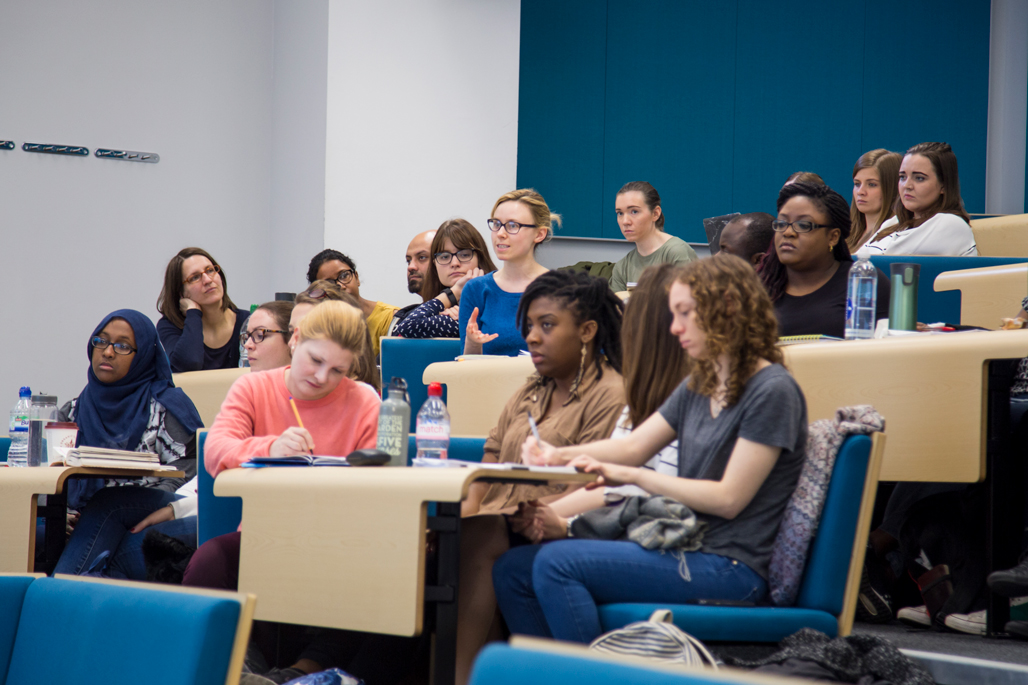
Our students
Ask a student.
Want to find out more about student life? Chat with our student ambassadors and ask any question you have
Our students' work
Housing and student life.

Accommodation and housing
We offer accommodation options and support for all postgraduate students. Our dedicated Accommodation Service can help you to find private accommodation in London if required.

Student wellbeing
Our extensive support network spans from learning support and disability support through to counselling, financial advice and career advice. Please do tell us if you need our help.

Living in London
We are based in the heart of one of the most vibrant and colourful cities in the world. London offers a rich variety of cultural experiences far beyond your studies.
What's happening
Apr 23
What makes a bestseller? (MA Publishing/International Publishing and MA Creative Writing and Publishing taster session)
Find out what it’s like to study Creative Writing and/or Publishing at City in a sample seminar on the question of 'What Makes a bestseller?’.
Tuesday, 23 rd April 2024 , 18:00 – 19:00
Location: Online
Audience: Prospective students

Wednesday, 10 th January 2024
Stories shape our world as concretely as infrastructure
Dr Dominic Davies publishes new book The Broken Promise of Infrastructure, which investigates the cultural politics of infrastructure in Britain.

Friday, 10 th March 2023
‘Working with Words’ opens up career possibilities for English students
Careers-focused module boosts BA English students’ employability at City.
Related courses
Publishing ma.
Become professionally equipped to secure competitive positions in the stimulating and ever evolving industry of publishing with our Publishing MA
Award: Master of Arts
Creative Writing MA
Explore your creative writing passion through the genre of your choice and learn how vivid imagination can impact all our lives.
International Publishing MA
Become professionally equipped to secure international positions in the stimulating and ever evolving industry of publishing with our International Publishing MA.
International Journalism MA
Develop professional journalism skills and your thinking about journalism in a global context with our International Journalism MA, a one-year professional practice course.
Useful links
- School of Communication & Creativity
- Creative writing and publishing at City, University of London
- Culture and creative industries at City, University of London
- English at City, University of London
- Fiction writing at City, University of London
Contact details
Postgraduate admissions office.
020 7040 8877
Manuscript Assessment
- Success Stories
- Reading Room
- Novel Writing
- Fiction Development
- Non-Fiction
- Writing for Children
- Short Story
Starting Out
- How’s My Driving
- An honest assessment of your work-in-progress, with advice to help you with the rest of the draft.
- Full Report
- Our most comprehensive report – a full MOT on your manuscript.
- Submission Review
- Ready to send your novel out into the world? Have your submission documents reviewed to make sure everything's in the best possible shape to impress an agent.
- Magazine Submission Review
- Ready to submit your poems to magazines, journals or websites? Get feedback on a selection of four to six of them to check you're on the right track.
- Pamphlet Review
- Designed for poets preparing a pamphlet for possible publication, this report will offer constructive feedback on a group of up to twenty poems.
- Collection Review
- Put your poems through their paces with an in-depth evaluation of your entire collection.
- Creative Writing Exercises
- Writing Competitions
The last page you viewed...
- by location
- Can't find the right course? Book a professional reader's report on your manuscript.

- Writing a Novel
- Our flagship course is available in London, Newcastle and online – spend six months working on your novel with help from experienced tutors and industry experts.
- Prose Assessment
- Poetry Assessment

- Q&As with our tutors and alumni, reading lists and deep dives into all aspects of creative writing – and lots more.

- Whether you're stuck on dialogue, plot, character or something else, we've got a whole range of exercises to help and inspire you.

- Here you'll find all of our past, ongoing and upcoming writing competitions, plus details of any others we think you should know about.

- How to Write a Novel
- If you’ve always dreamed of writing a novel but are overwhelmed and unsure of where to start, here are some key things to think about along your writing journey.

Creative Writing Courses
Our creative writing courses are run by award-winning authors and industry experts from Faber and beyond. Whether you’re just starting out or an experienced writer taking the next step in your career, we offer the support and structure you need to achieve your writing goals.

Our creative writing courses: an overview
From one-day introductory workshops, to six-month advanced courses, Faber Academy offers a full range of creative writing courses for writers at every stage of their journey.
With options to study in-person at Faber's HQ in Hatton Garden, Newcastle, or online via our bespoke online classroom, writers can choose from classes in fiction, non-fiction or poetry with experienced and passionate tutors.

- Popular Categories Non-fiction Poetry Crime Writing for Children Short Story Novel Writing Fiction Development
- Level Advanced Starting out Improving
- Location Online London Newcastle
- Length 1-5 days 12 weeks 6 month +
- Featured Featured Upcoming Lowest Price A-Z Z-A
Popular Categories
Our advanced courses in fiction and poetry offer the next step for the committed writer – serious writing time, industry advice and expert guidance, along with a close-knit group of fellow writers to keep you on track.

Writing a Novel (Online)
What do these levels mean?
Sarah May, Jessica Moor
Monday 30 Sep 2024
Application Deadline
Monday 16 Sep 2024

Writing a Novel (Evening)
Richard T. Kelly, Sarah May, Joanna Briscoe, Diana Evans, Sophie Mackintosh, Claire Daverley
Wednesday 02 Oct 2024
Sunday 15 Sep 2024
Places available

Writing a Novel (Daytime)
Shelley Weiner, Sabrina Broadbent, Nikesh Shukla, Sophie Mackintosh, Nicola Dinan
Thursday 03 Oct 2024

Writing Women
Katherine Angel, Sharlene Teo
Monday 19 Aug 2024
Last few places available

Writing Audio Drama: From Plays to Podcasts
Mike Harris
Monday 26 Aug 2024

Start to Write Poetry
Richard Scott
Saturday 31 Aug 2024

Start to Write
Richard Skinner, Sarah May

Marcel Theroux

The Five Day Short Story
Shelley Weiner
Monday 02 Sep 2024

Masterclass: The Whole Writing Process in One Go
Richard Skinner

An Introduction to Writing a Novel (Newcastle)
Richard T. Kelly
Saturday 07 Sep 2024
Can’t find the right course?

Get comprehensive editorial feedback on your manuscript from our experienced readers – whether it’s still a work-in-progress or you’re preparing to submit to literary agents.

We offer a range of mentoring options if you’d prefer to work one-on-one with an established writer to help you shape your project and realise your writing ambitions.
We use cookies to personalise your experience. By continuing to visit this website you agree to our use of cookies.
Course Level Guide
There’s something for everyone at the Faber Academy, whether you’re a complete beginner or a seasoned writer or somewhere in between. To help you select the right course for you, this guide breaks down what the different levels mean.
These courses are ideal for those who are curious about writing and have little to no prior experience in the field. There are no pre-requisite for these courses – all we ask is that you come with an open mind and a keenness to learn. That’s not to say they aren’t suitable for someone with more experience, though – if you’re looking to refresh your skills or experiment with a new area of writing, you’re also welcome to enrol.
These courses are ideal for those who have some experience in writing – as a hobby, or perhaps through academic or professional work – and are looking for challenging courses to hone their skills further. These courses are also a good next step if you’ve already taken a beginners’ class but don’t feel ready to commit to an advanced course yet.
These courses are ideal for seasoned writers who are serious about getting published. Entry to most of these courses is on an application basis and writers will usually be asked to submit samples of their work-in-progress or a past project.
King's College London
Creative writing research phd.
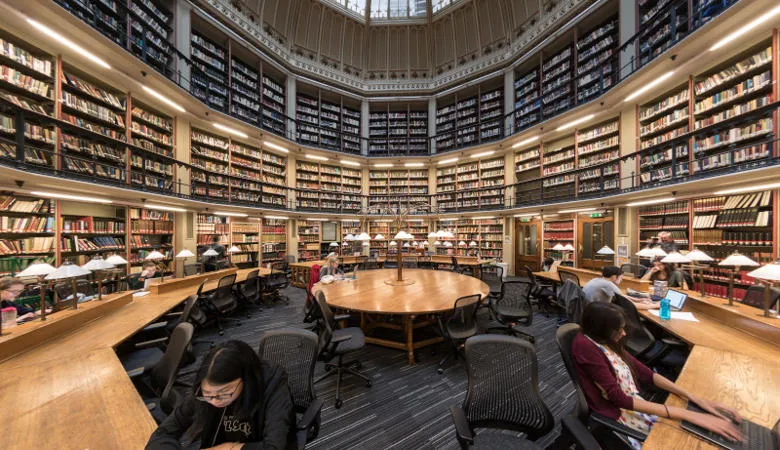
Key information
The PhD in Creative Writing at King’s is a practice-led course, incorporating taught elements and aspects of professional development. It is designed to cater for talented, committed writers who are looking to complete a book-length creative work for publication and sustain a long-term career in writing.
Key Benefits
Our unique programme offers students:
- a varied, structured framework for the development of their creative work, with regular feedback from experienced author-lecturers in the department through supervision and workshops
- purposeful engagement with professionals from the publishing and performance industries throughout the course, building potential routes to publication
- valuable teaching experience in creative writing at HE-level through our Graduate Teaching Assistantship scheme
- practical experience in public engagement, through curating and chairing public literary events at King’s
- a community of fellow writers and collaborative projects
English Department
We have over 100 doctoral students from all over the world working on a wide range of projects. Together with our community of postdoctoral fellows, our early career researchers both organise and participate in our thriving seminar and conference culture.
The English department is home to award-winning novelists, poets, essayists, biographers, non-fiction authors, and literary critics, who supervise creative projects at doctoral level within their specialisms.
Works by our staff have won or been shortlisted for a number of literary accolades, including: the T.S. Eliot Prize, the Forward Prize, the Man Booker Prize, the Sunday Times Young Writer of the Year, the Costa First Novel Award, the Costa Poetry Award, the Somerset Maugham Award, the Commonwealth Book Prize, the Biographers’ Club / Slightly Foxed First Biography Prize, the U.S. National Book Critics Circle Award, the CWA Gold Dagger Award, the European Union Prize for Literature, the RSL Encore Award, the Los Angeles Times Book Award, the E.M. Forster Award from the American Academy of Letters, le Prix du Roman Fnac, le Prix du Roman Etranger, the Kiriyama Prize, the Republic of Consciousness Prize, the Royal Society of Literature’s Encore Award, and the OCM Bocas Prize for Caribbean Literature. Many of the creative writing staff are Fellows of the Royal Society of Literature.
Their most recent publications are:
Benjamin Wood
The Young Accomplice (Penguin Viking, 2022) – fiction
A Station on the Path to Somewhere Better (Scribner, 2018) – fiction
Edmund Gordon
The Invention of Angela Carter (Chatto & Windus, 2016) – creative non-fiction
Loop of Jade (Chatto & Windus, 2015) – poetry
Anthony Joseph
Sonnets for Albert (Bloomsbury Publishing, 2022) – poetry
The Frequency of Magic (Peepal Tree Press, 2019) – fiction
Lara Feigel
The Group (John Murray Press, 2020) – fiction
Free Woman: Life, Liberation and Doris Lessing (Bloomsbury, 2018) – creative non-fiction
Homing: On Pigeons, Dwellings, and Why We Return (John Murray Press, 2019) – creative non-fiction
Daughters of the Labyrinth (Corsair, 2021) – fiction
Beethoven Variations: Poems on a Life (Chatto & Windus, 2020) – poetry
Emerald (Chatto & Windus, 2018) – poetry
Andrew O'Hagan
Mayflies (Faber & Faber, 2020) – fiction
The Secret Life: Three True Stories (Faber & Faber, 2017) – creative non-fiction
*may vary according to research leave and availability.
King's Alumni
The list of King’s alumni not only features many acclaimed contemporary authors—Michael Morpurgo, Alain de Botton, Hanif Kureishi, Marina Lewycka, Susan Hill, Lawrence Norfolk, Ross Raisin, Alexander Masters, Anita Brookner, and Helen Cresswell—it also includes major figures in literature, such as Maureen Duffy, Arthur C Clarke, Thomas Hardy, Christopher Isherwood, BS Johnson, John Keats, W. Somerset Maugham, and Virginia Woolf.
Course Detail
Our postgraduate writing students are given a supportive environment in which to enhance their technique, to explore the depths of their ideas, to sustain their creative motivation, and to prepare them for the demands of the writer’s life beyond the College.
At King's we know that writing well requires self-discipline and an ability to work productively in isolation; but we also appreciate that postgraduate writers thrive when they are part of a community of fellow authors, an environment of constructive criticism and shared endeavour.
That is why we offer our PhD students the guidance of knowledgeable and experienced practitioners. They will have frequent opportunities to interact and collaborate with peers and forge lasting connections within London’s writing industry.
Students will be expected to attend the quarterly Thesis Workshop, and also to take an active part in curating literary events at King’s, including the Poetry And… quarterly reading series. They will be invited to apply for positions teaching undergraduate creative writing modules as part of the Department’s Graduate Teaching Assistantship (GTA) scheme.
After three years (full-time) or six years (part-time), students are expected to submit either:
- a novel or short story collection
- a poetry collection
- a full-length work of creative non-fiction
In addition, they are also required to submit an essay (up to 15,000 words) that examines their practical approach to the conception, development, and revision of their project, and which explores how their creative work was informed by research (archival, book-based, or experiential).
- How to apply
- Fees or Funding
Many of our incoming students apply for AHRC funding via the London Arts and Humanities Partnership. Please see their website ( www.lahp.ac.uk ) for more detail of deadlines, application procedure and awards available. Also the ‘Student Funding’ section of the Prospectus will give you more information on other scholarships available from King’s.
UK Tuition Fees 2023/24
Full time tuition fees:
£5,820 per year (MPhil/PhD, Creative Writing)
Part time tuition fees:
£2,910 per year (MPhil/PhD, Creative Writing)
International Tuition Fees 2023/24
£22,900 per year (MPhil/PhD, Creative Writing)
£11,450 per year (MPhil/PhD, Creative Writing)
UK Tuition Fees 2024/25
£6,168 per year (MPhil/PhD, Creative Writing)
£3,084 per year (MPhil/PhD, Creative Writing)
International Tuition Fees 2024/25
£24,786 per year (MPhil/PhD, Creative Writing)
£12,393 per year (MPhil/PhD, Creative Writing)
These tuition fees may be subject to additional increases in subsequent years of study, in line with King’s terms and conditions.
- Study environment
Base campus

Strand Campus
Located on the north bank of the River Thames, the Strand Campus houses King's College London's arts and sciences faculties.
PhD in Creative Writing students are taught through one-to-one sessions with an appointed supervisor in their chosen specialism (fiction, creative non-fiction, or poetry) as well as through quarterly thesis workshops. They are also appointed a second supervisor whose role is to offer an additional perspective on the work being produced.
We place great emphasis on pastoral care and are a friendly and welcoming department in the heart of London. Our home in the Virginia Woolf Building offers many spaces for postgraduate students to work and socialise. Studying in London means students have access to a huge range of libraries from the Maughan Library at King’s to the Senate House Library at the University of London and the British Library.
Our PhD Creative Writing students are taught exclusively by practicing, published writers of international reputation. These include:
Benjamin Wood (Senior Lecturer in Creative Writing)
Supervises projects in fiction.
Edmund Gordon (Senior Lecturer in Creative Writing)
Supervises projects in fiction and creative non-fiction.
Sarah Howe (Lecturer in Poetry)
Supervises projects in poetry.
Anthony Joseph (Lecturer in Creative Writing)
Supervises projects in poetry and fiction.
Jon Day (Senior Lecturer in English)
Supervises projects in creative non-fiction and fiction
Lara Feigel (Professor of Modern Literature)
Supervises projects in creative non-fiction and fiction.
Ruth Padel (Professor Emerita of Poetry)
Andrew O’Hagan (Visiting Professor)
*Teaching staff may vary according to research leave and availability.
Our programme also incorporates the following taught components:
Thesis Workshop
A termly writing seminar for the discussion and appraisal of works-in-progress. These are taught on a rotational basis by all members of the creative writing staff, so that students get the benefit of hearing a range of voices and opinions on their work throughout the course.
The Writing Life
A suite of exclusive guest talks and masterclasses from leading authors, publishers, and editors, in which students receive guidance from people working at the top level of the writing industry and learn about the various demands of maintaining a career as a writer.
Recent speakers have included Amit Chaudhuri, Chris Power, Rebecca Watson, Mendez, Frances Leviston, Joanna Biggs, Joe Dunthorne, Francesca Wade, Kishani Widyaratna, Jacques Testard and Leo Robson.
Other elements of professional development are included in the degree:
Agents-in-Residence
Candidates in fiction or creative-nonfiction will meet and discuss their work in one-to-one sessions with invited literary agents, who are appointed to yearly residencies. These sessions offer writers a different overview of the development of their project: not solely from the standpoint of authorial technique, but with a view towards the positioning of their writing within a competitive and selective industry. Poetry candidates will meet and discuss their work with invited editors from internationally recognised poetry journals and presses.
Undergraduate Teaching
Through our Graduate Teaching Assistant (GTA) training scheme, our PhD students can apply to lead undergraduate creative writing workshops in fiction, creative non-fiction, and/or poetry, enabling them to acquire valuable HE-level teaching experience that will benefit them long after graduation.
Reading Series
Our students are required to participate in the curation of literary events at King’s. They are also responsible for curating Poetry And… , a quarterly reading in which leading poets illuminate the powerful connections between poetry and other disciplines. Students will develop skills in public engagement by chairing discussions and may also perform excerpts of their own writing.
Postgraduate Training
There is a range of induction events and training provided for students by the Centre for Doctoral Studies, the Faculty of Arts and Humanities and the English Department. A significant number of our students are AHRC-funded through the London Arts and Humanities Partnership (LAHP) which also provides doctoral training to all students. All students take the ‘Doctoral Seminar’ in their first year. This is a series of informal, staff-led seminars on research skills in which students can share and gain feedback on their own work. We run a series of ‘Skills Lunches’, which are informal lunch meetings with staff, covering specific topics, including Upgrading, Attending Conferences, Applying for Funding and Post-Doctoral Awards, etc. Topics for these sessions are generally suggested by the students themselves, so are particularly responsive to student needs. We have an Early Career Staff Mentor who runs more formal workshops of varying kinds, particularly connected to career development and the professions.
Through our Graduate Teaching Assistantship Scheme, doctoral students can apply to teach in the department (usually in their second year of study) and are trained and supported as they do so.
- Entry requirements

Find a supervisor
Search through a list of available supervisors.

Accommodation
Discover your accommodation options and explore our residences.

Connect with a King’s Advisor
Want to know more about studying at King's? We're here to help.

Learning in London
King's is right in the heart of the capital.
- Current students
- New students
- Returning students
- Support for students
- Semester and term dates
- Policies and regulations
- Online learning tools
- Your feedback
- Studying off campus
- Results and graduation
- Student Portal
- Student handbook
- Student news
Creative Writing PhD
Course detail, entry requirements.
- Fees & funding
- Study & career progression
A PhD in Creative Writing gives you the opportunity to develop an original piece of writing (for example a novel, play, screenplay, radio drama) and an accompanying thesis, in which you connect this creative work to relevant theoretical, critical and historical thinking. Together, these assessed elements lead to the award of the prestigious PhD in Creative Writing.
Working collaboratively, we aim to help you craft your work to the highest possible standard as well as facilitate your engagement with the professional world. All writers are encouraged to develop their skills in the broadest way possible. This means participating in writing exercises across a spectrum including reviews and blogs.
Our academics are often consulted by publishers about book proposals and manuscripts. ee a list of potential PhD supervisors and read about their expertise, in the 'Supervisors' section lower down the page.
Find out more about the full range of PhD study opportunities in the School of Film, Media and Design.

Select your desired study option, then pick a start date to see relevant course information:
Start date:
If your desired start date is not available, try selecting a different study option.
Why study Creative Writing with us?

What our students say…
UWL has truly state-of-the-art facilities. I feel like I'm learning something new every day.

Research Centres
We have seven Research Centres, staffed by experts with an enviable record of publications, conferences, media and public engagement work.

World-leading Research
The University of West London has been recognised by the Government's Research Excellence Framework (REF) for its exceptional research work.

You will be supervised by active researchers/writers with considerable experience of publication, editing, and working with other writers. Our academics are widely published on topics as varied as Jane Austen, Rambo, and literary adaptations.
About PhD study
This course is available for you to study either on a full-time or part-time basis and you have the flexibility to switch should you need to.
A PhD is founded on independent research. You will undertake a systematic and in-depth exploration of your chosen topic to produce a substantial body of knowledge and make an original and important contribution to the subject area.
The support provided by your supervisory team will be vital to your student experience and scholarly advancement. You and your supervisors will have regular one-to-one meetings which will provide you with opportunities to develop your research topic and discuss your progress.
Our research record
View our academic journal 'New Vistas' to see the work of students and academics who are making an impact both locally and globally through their research findings.
Based in the heart of Ealing, west London, you can make use of the excellent transport links to travel to the the capital or further afield - ideal for attending research meetings and networking events.
Got a question?
If you would like guidance or more information about studying for a research degree, you can contact Professor Jeremy Strong .
To enable you to enhance your professional profile, we support you throughout your research degree by:
- providing research seminars
- organising doctoral events and activities
- facilitating networking and collaboration opportunities
- encouraging and supporting publication and dissemination of your research
- offering opportunities to gain teaching expertise and experience.
We provide structured research training, expert supervision, and an environment where you can discuss your research with other PhD students and researchers.
We run seminars in research methods from the Graduate Centre, as well as an ongoing series of events and activities organised by Schools and Colleges. Specialist help with academic English for students for whom English is not their first language is available.
Our facilities include a fully equipped TV Studio containing a lighting grid with DMX lighting control, green and white screens, Ross Crossover Vision Mixer for live editing and audio and video recorder / playback devices.
Media Resource Centre
Our Media Resource Centre is available to all London School of Film Media and Design students for free. We hold a variety of cameras, lights, sound equipment and recording devices. Students can also loan equipment demonstrated in class.
The Paul Hamlyn Library
The Paul Hamlyn Library provides an extensive range of books, journals and digital resources, PC and Mac workstations and a variety of study spaces. Find out more about what the Paul Hamlyn Library has to offer .
We contribute to national and international initiatives and promote collaboration and networking opportunities. We also encourage and support you to publish and disseminate your research in academic journals and via presenting papers at conferences.
We run an annual conference for doctoral students, where you are encouraged to present a paper about your research. As well as being an opportunity to discuss your work with other students, the conference is a chance to gain valuable experience in presenting your research and participating in open discussions with academic peers.
You will also find other opportunities such as postgraduate student seminars and forums within your specific subject area.
Once you start a PhD course at UWL, you become part of our research community. You will have access to a postgraduate common room, located at our Ealing campus on St Mary’s Road, where you will meet fellow researchers from other subject disciplines offering scope for collaborations or simply to discuss ideas, allowing you to be part of a vibrant research environment.
- Requirements: UK
- Requirements: International
The minimum entry requirements for a research degree are:
- a good first degree (First Class or Upper Second Class), or equivalent qualification in a relevant field
- a Masters Degree (MA, MSc, MBA or MRes) with Merit, or equivalent postgraduate or research experience.
We look for students with:
- a passion for their chosen subject.
You will also have a well thought through and persuasive proposal.
- Competence in written and spoken English is a pre-requisite for entrance to this programme. An IELTS (International English Language Testing System) score of 6.5 (with no element under 6.0).
Fees & funding
- Funding: UK
- Funding: International
The fee above is the cost per year of your course.
If your course runs for two years or more, you will need to pay the fee for each academic year at the start of that year. If your course runs for less than two years, the cost above is for your full course and you will need to pay the full fee upfront.
Government regulation does affect tuition fees and the fees listed for courses starting in the 2025/26 academic year are subject to change.
If no fee is shown above then the fees for this course are not available yet. Please check again later for updates.
Funding your studies
Funding for postgraduate students usually comes from one or more of a range of key sources:
- research councils
- charities and trust funds, including those funded by the UK government
- higher Education institutions
- overseas governments (international students only)
- professional and career development loans
- self-funding (including family funds).
Find out more about funding opportunities. Examples of most of these types of funding are included on the postgraduate studentships website , (with the exception of funding you may be able to obtain from your employer and self-funding).
Bursaries and scholarships
We offer generous bursaries and scholarships to make sure your aspirations are your only limit. See our PhD scholarships , scholarships and bursaries .
For any overseas students, your first port of call should be grant-awarding bodies in your own country (eg The Ministry / Department of Education) and your local (or nearest) office of the British Council.
The British Council manage a small number of international studentship grants in some countries and should be able to tell you what other awards may be available to you - they also produce the Sources of funding for international students guide.
Supervisors
Professor jeremy strong.

Dr Jonathon Crewe

Study & career progression

Studying for a PhD enables you to develop an area of specialism that will give you an edge whether you are planning to work in industry or to develop expertise to teach in academia.
Graduates of the PhD: Creative Writing will be highly accomplished writers, fluent and capable in what is – perhaps – the ultimate transferable skill. It will help position you for a career in the many branches of the thriving media and cultural industries – nationally and internationally - as well as for academic careers in teaching and research
How to apply
- How to apply: UK
- How to apply: International

To apply for one of our research courses, click the green 'apply now' link shown below to complete an online application form. You will need to attach the following documentation to your online application form:
- research proposal outline (5000 words maximum)
- transcript of your highest qualification.
The research proposal outline, or statement of research interests, enables us to assess your suitability for higher degree work including:
- viability of the topic as a research study
- the most appropriate supervisor(s) to be appointed.
Learn more about applying for a PhD.
Apply for this course
Next steps after making your application.
We aim to make a decision on your application as quickly as we can. If we need any more information about your qualifications, we will be in touch.
In the meantime, come and visit us and find out more about what studying at UWL is like. Sign up for an open day or join a campus tour .
- Applying for an undergraduate course
- Applying for a postgraduate course
- Our Admissions Policy
Visit us and see for yourself
Talk to our tutors and find out about our courses and facilities at our next open day or join a campus tour.
We're here to help
Any questions about a course or studying at UWL? We're here to help - call us on 0800 036 8888 (option 2, Monday – Friday 10am-4pm) or email us on [email protected].
To apply for one of our research courses, click the green 'apply now' link shown below to complete an online application form. You will need to attach the following documentation to your online application form:
- research proposal outline
Related courses
Phd english literature.

PhD Film Studies

PhD Psychology

Search for courses
Student life at uwl.

- Seven reasons to study with us
- Accommodation
- Student support
- Our campus and sites
Important notes for applicants
* Modern universities - defined as higher education institutions that were granted university status in, and subsequent to, 1992.
** The National Student Survey 2023 and 2024 - Average of answers to all questions by registered student population. Excludes specialist institutions.
Testimonials - our students or former students provided all of our testimonials - often a student from the course but sometimes another student. For example, the testimonial often comes from another UWL student when the course is new.
Optional modules - where optional modules are offered they will run subject to staff availability and viable student numbers opting to take the module.
Videos - all videos on our course pages were accurate at the time of filming. In some cases a new Course Leader has joined the University since the video was filmed.
Availability of placements - if you choose a course with placement/internship route we would like to advise you that if a placement/internship opportunity does not arise when you are expected to undertake the placement then the University will automatically transfer you to the non-internship route, this is to ensure you are still successful in being awarded a degree.
View our degree programmes available in clearing! Apply now
2021 Northeastern University London Essay Competition Awards
Congratulations to all of our essay winners!
This year we had over 6000 entries with many outstanding and thought-provoking pieces. Well done to everyone to entered, it was a tough decision. The winners should be proud of themselves for producing such exemplary work.
You can find this year’s questions and a list of all the winners with their essays attached here:
Essay Questions
Art History: Should the West return cultural artefacts to their former colonial territories?
Creative Writing: It is 2120. There is no longer any such thing as poetry, or poets. What happened?
Data Science: What is the importance of ethics in data science?
Economics: How relevant is economics during a pandemic and in what way might economists make things better?
English: Is literature always a force for good?
History: Will the Covid-19 pandemic change human history?
Law: When, if ever, should one be criminally liable for infecting another person with a disease?
Philosophy: Should robots have rights? Why or why not?
Politics and International Relations: Is democracy experiencing a setback worldwide?
Psychology: Discuss the sources of mental health issues in the modern world
Art History
First place: John Chang Read John’s essay
Second place: Mia Mack Read Mia’s essay
Third place: Hanna Johal Read Hanna’s essay
Creative Writing
First place: Alexander Archer Read Alexander’s essay
Second place: Nancy Connor Read Nancy’s essay
Third place: Adriana Garcia Alumbreros Read Adriana’s essay
Data Science
First place: Shaun Pexton Read Shaun’s essay
Second place: Emma Chandler Read Emma’s essay
Third place: Rabiah Ahmad Read Rabiah’s essay
First place: Kangzi Chan Read Kangzi’s essay
Second place: Scarlett Westbrook Read Scarlett’s essay
Third place: Aman Sultan Read Aman’s essay
First place: Maya Panasar Read Maya’s essay
Second place: George Oates Read George’s essay
Third place: Grace Middlemas, Layal Muhtadi Read Grace’s essay Read Layal’s essay
First place: Juliet Donajgrodzki Read Juliet’s essay
Second place: Joseph Andrews Read Joseph’s essay
Third place: Libby Stone Read Libby’s essay
First place: Kate Taylor Smith Read Kate’s essay
Second place: Gabriella Deegan, Kashvi Grover Read Gabriella’s essay Read Kashvi’s essay
Third place: Scott Lee Read Scott’s essay
First place: Jodie Strutt Read Jodie’s essay
Second place: Amy Young Read Amy’s essay
Third place: Oscar Burstal Read Oscar’s essay
Politics and IR
First place: Frances Rigby Read Frances’ essay
Second place: Alma Talbot Read Alma’s essay
Third place: Daniel Hidalgo-Anguera Read Daniel’s essay
First place: Fynn Hoffman Read Fynn’s essay
Second place: Mercy Otasowie Read Mercy’s essay
Third place: Grace Forward Read Grace’s essay

IMAGES
COMMENTS
From time to time, individual faculty members may stop teaching at the College. In such instances, the College will undertake reasonable endeavours to ensure that students are taught by another academic with an appropriate level of qualification, research interests, and experience. Welcome to the English with Creative Writing BA (Hons) at NCH!
From time to time, individual faculty members may stop teaching at the College. In such instances, the College will undertake reasonable endeavours to ensure that students are taught by another academic with an appropriate level of qualification, research interests, and experience. Welcome to the LLB (Hons) Law with Creative Writing at NCH!
Places are now available for our English with Creative Writing BA (Hons) programme, starting in September. Watch Jaya Savige, Head of Creative Writing...
97 views, 2 likes, 0 loves, 0 comments, 0 shares, Facebook Watch Videos from Northeastern University London: Places are now available for our English with Creative Writing BA (Hons) programme,...
NCH also offers Philosophy, Politics & Economics (PPE) and Philosophy, Politics & History (PPH) combinations, Creative Writing as a minor option, and a single honours Law LLB.
Learn more about studying at Northeastern University London including how it performs in QS rankings, the cost of tuition and further course information.
NCH London also runs an annual essay competition for Year 12 students, which is open worldwide. The contest includes various categories that may be of interest to future English students.
Northeastern University - London is a public university in London, England. It was founded in 2010 as New College of the Humanities by the philosopher A. C. Grayling, who became its first Master. [ 2] The college originally specialized in the humanities, social sciences, and master's degrees at the intersection of the humanities and ...
From time to time, individual faculty members may stop teaching at the College. In such instances, the College will undertake reasonable endeavours to ensure that students are taught by another academic with an appropriate level of qualification, research interests, and experience. Welcome to the Economics with Creative Writing BSc (Hons) at NCH!
Our selection of essay titles engages across a contemporary range of humanities and social sciences questions from Art History to Data Science and from creative Writing to Economics. Click to see subjects and essay titles.
From time to time, individual faculty members may stop teaching at the College. In such instances, the College will undertake reasonable endeavours to ensure that students are taught by another academic with an appropriate level of qualification, research interests, and experience. Welcome to the Economics with Creative Writing BSc (Hons) at NCH!
Below is the list of 20 best universities for Creative Writing in London, ENG ranked based on their research performance: a graph of 120K citations received by 9.53K academic papers made by these universities was used to calculate ratings and create the top.
Explore your creative writing passion through the genre of your choice and learn how vivid imagination can impact all our lives.
Creative Writing Staff. The English department is home to award-winning novelists, poets, essayists, biographers, non-fiction authors, and literary critics, who teach undergraduate modules in a range of disciplines. They also supervise creative projects at doctoral level within their specialisms.
Learn how to effectively combine business acumen with creative endeavour by building your knowledge of the publishing industry and significantly enhancing your writing skills.
1) SUMMER WRITING TASK: START YOUR 'COMMONPLACE BOOK' In all Creative Writing courses at NCH, you are required to keep two notebooks or exercise books. These should be no smaller than A5 and are for the following uses: 1 x Writer's Workbook for writing exercises conducted in class and for homework.
Join a creative writing course in the London offices of Faber, the UK's leading independent publisher. Fiction, non-fiction and poetry courses available.
Our creative writing courses take place online and at Faber's London offices. Whether you're a beginner or an experienced writer, find the support you need.
Creative Writing Research PhD. The PhD in Creative Writing at King's is a practice-led course, incorporating taught elements and aspects of professional development. It is designed to cater for talented, committed writers who are looking to complete a book-length creative work for publication and sustain a long-term career in writing.
The Northeastern University London Essay Competition is open to students who are currently in their penultimate (second to last) year of secondary education (Year 12 in England or Grade 11 in India). This is a global competition, so we encourage entries from those studying anywhere in the world. Find full competition rules here.
A PhD in Creative Writing gives you the opportunity to develop an original piece of writing and an accompanying thesis, in which you connect this creative work to relevant theoretical, critical and historical thinking.
Essay Questions Art History: Should the West return cultural artefacts to their former colonial territories? Creative Writing: It is 2120. There is no longer any such thing as poetry, or poets. What happened? Data Science: What is the importance of ethics in data science?